San Diego merece tener una economía y comunidades saludables.
Haga clic en la imagen de abajo para escuchar las historias de nuestro comunidad y aprende más sobre nuestro movimiento para conectar a San Diego..
Environmental Health Coalition (EHC) works for environmental justice in the San Diego/Tijuana region and throughout California. Founded in 1980, EHC has worked to reduce pollution and improve health and well-being for thousands of people in underserved, low-income communities. We believe that all people and communities have the right to live, work and play in a clean and safe environment regardless of their zip-code.
EHC's local work supports residents in low-income, ethnically diverse communities including Barrio Logan, Sherman Heights, Logan Heights, City Heights, National City and Colonia Chilpancingo.
A common thread in all of EHC's campaigns is the recognition of the cumulative impacts of environmental, social, political and economic vulnerabilities that affect the quality of life in our communities.
We are committed to working with low-income communities and communities of color to:
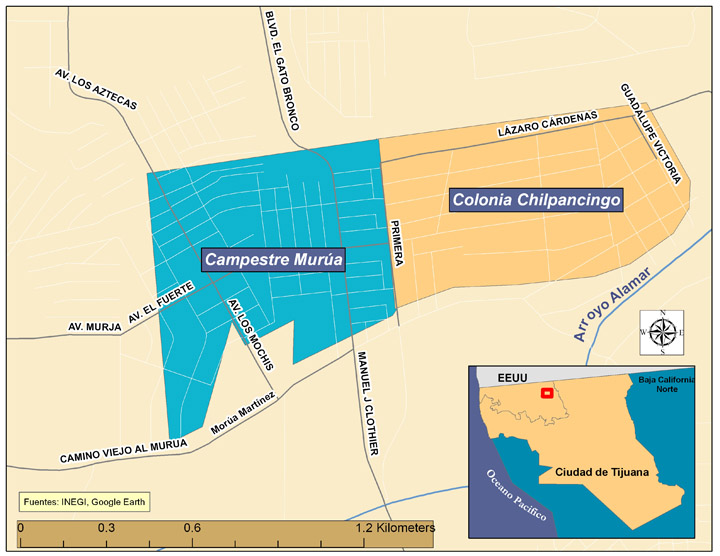
The communities of Colonia Chilpancingo, Colonia Murua and Nueva Esperanza share many of the problems found in San Diego's communities of color: substandard housing, over-crowded schools, a lack of social services, low-paid jobs, polluting industries mixed in with residential and commercial sites, industrial truck traffic, lack of parks and healthy food outlets, and severe air pollution. They are also adjacent to Tijuana's largest Maquiladora industrial complex.
EHC chose to work in these neighborhoods of Tijuana because their pollution problems skyrocketed after the passage of the North American Free Trade Agreement (NAFTA) in 1994 and the resulting growth of the maquiladora industry.
Although comprehensive economic and demographic data is not available for these neighborhoods, available data show that 67% of the homes have dirt floors, 66% do not have piped water, and 33% do not have sewer hook-ups. Two adults employed full-time in the maquiladora industry, the main source of employment, cover only two-thirds of the basic needs of a family of four.
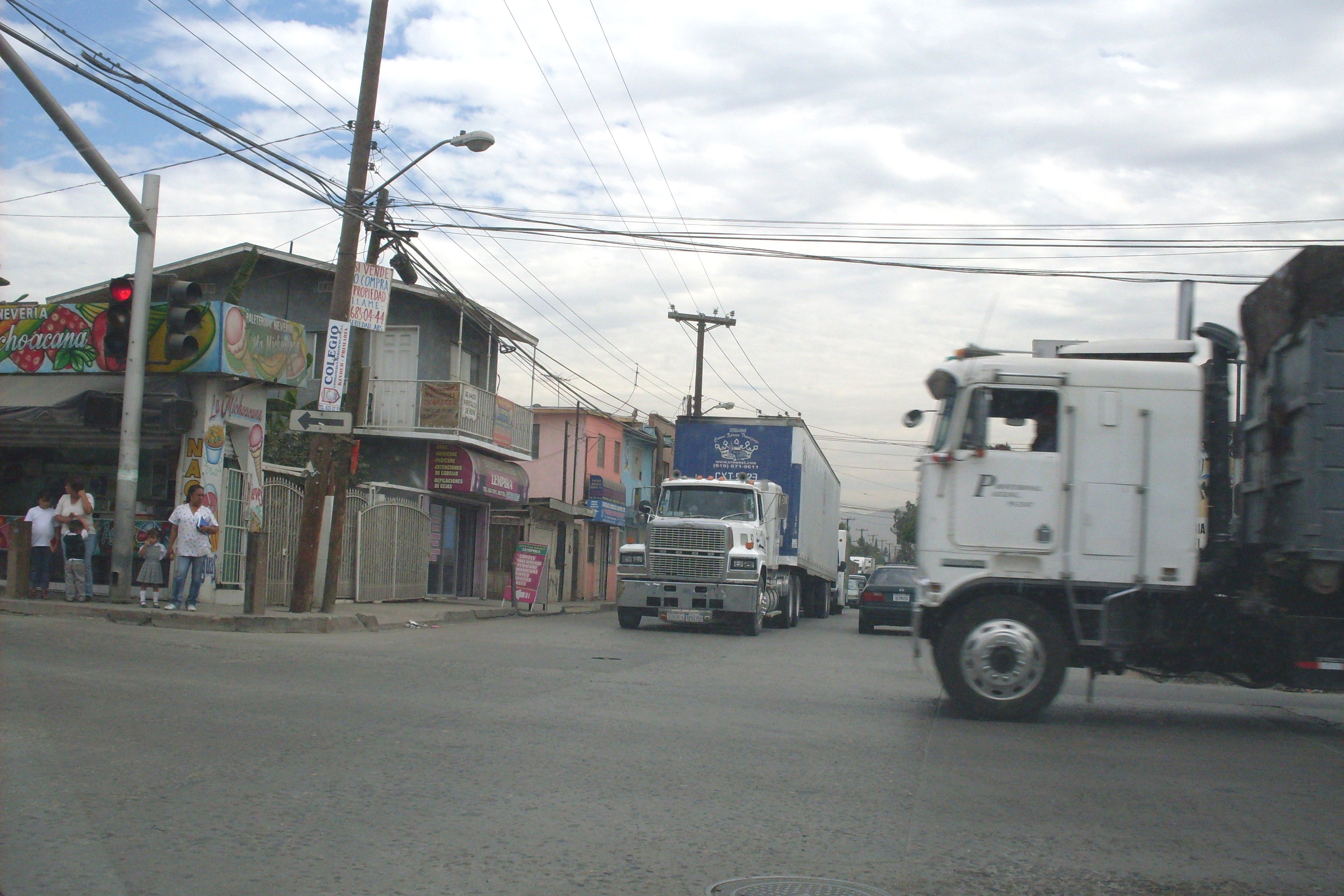
President Barack Obama appointed our executive director, Diane Takvorian, as a member of the Joint Public Advisory Committee to the CEC. Through this membership, she hopes to strengthen the tri-national commitment to environmental justice and bring the voice of the people to the front and center. She is currently working to strengthen the Citizens' Petition process.
Setup a PARA SIEMPRE giving plan to ensure your legacy and investment in creating healthy neighborhoods continues forever.
A bequest is one of the easiest gifts to make. With the help of an advisor, you can include language in your will or trust specifying a gift to be made to Environmental Health Coalition as part of your estate plan.
You can make a gift (bequest) to EHC through your will or living trust in the following ways:
*The information in this material is not intended as tax or legal advice. It may not be used for the purpose of avoiding any federal tax penalties or liabilities. Please consult your financial advisor to complete your donation.
Contact us: If you have any questions please contact our Fund Development Manager, Clay Myers-Bowman at (619) 474-0220 ext. 118 or by email: This email address is being protected from spambots. You need JavaScript enabled to view it.
We would be happy to assist you and answer any questions you might have.
Have you ever considered donating your securities (i.e. stocks and mutual funds) as an alternative to cash? Donating appreciated securities – such as stock or mutual funds –is a tax-wise approach to fund your gift to Environmental Health Coalition.
Environmental Health Coalition prefers and recommends undesignated gifts, allowing for the greatest flexibility in responding to our evolving needs and priorities, but will also accept gifts designated to a specific purpose. Please contact us if you choose to designate your gift.
To transfer your securities, provide the following information to the institution holding your securities you intend to donate:
And finally, so we are better able to link the contribution with you – please send an email to our CFO Tony Pettina at This email address is being protected from spambots. You need JavaScript enabled to view it.., with your full name and contact information and name of the stock being gifted. Thank you.
Contact information: If you have questions about making a gift of appreciated securities, contact our CFO, Tony Pettina as 619 773 2124 or This email address is being protected from spambots. You need JavaScript enabled to view it..
*The information in this material is not intended as tax or legal advice. It may not be used for the purpose of avoiding any federal tax penalties or liabilities. Please consult legal or tax professionals for specific information regarding your individual situation.
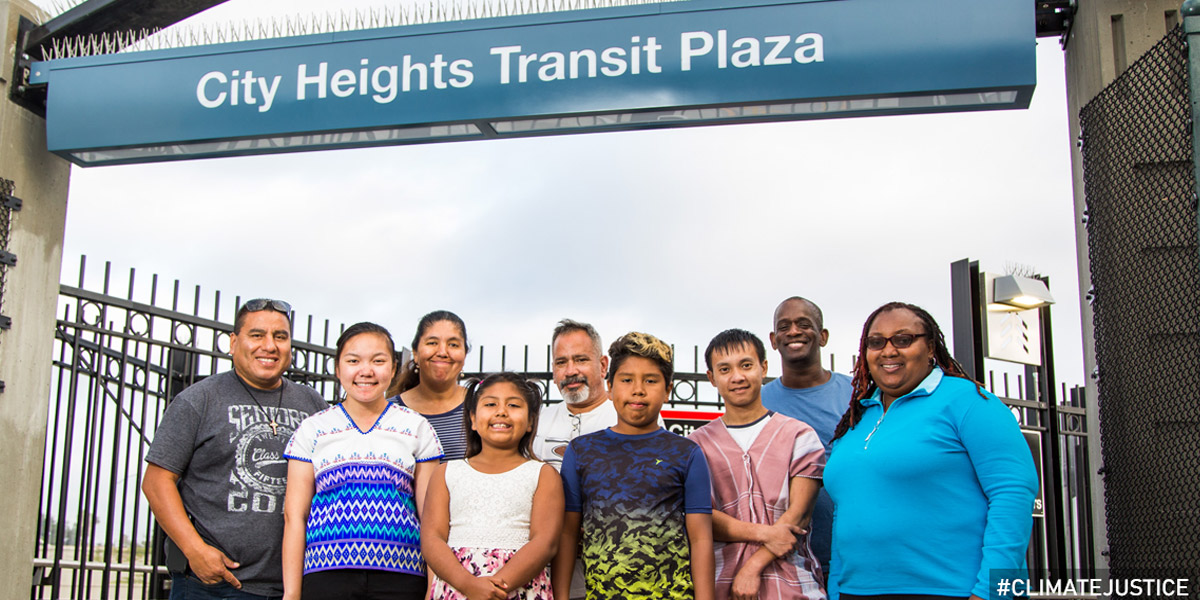
In April 2020, the MTS Board of Directors postponed Elevate SD 2020, a ballot measure that, if approved, would have raised $24 billion over the next 50 years. The initiative had the potential to transform San Diego’s transit system. EHC, community members, and partner organizations have all worked tirelessly for the past two years advocating for MTS to prioritize equity and environmental justice (EJ) communities as it shaped Elevate SD 2020.
Then our lives were completely upended by the COVID-19 pandemic. As transit ridership plummeted and unemployment skyrocketed, the likelihood of a successful ballot measure became dire. While the ballot measure will not move forward, EHC and the San Diego Transportation Equity Working Group (SDTEWG) will now work even harder to achieve our EJ priorities through different channels like the SANDAG regional transportation plan.
Our communities and our environment cannot afford “a return to normal.” We cannot afford to waste time and money by locking in decades of toxic pollution and greenhouse gas emissions, which will lead us into another health crisis from worsened air pollution and climate change.
Follow us on Facebook and Twitter to stay tuned for updates on our climate and transportation justice work as we continue to advance EJ priorities.
For more information about our Transportation Justice advocacy, contact Oscar Medina at This email address is being protected from spambots. You need JavaScript enabled to view it.
Renters need clean energy too. In San Diego, non EJ communities have more than double the residential solar (40 per 1000 residents) compared to EJ communities (18 per 1000 residents). We attribute this discrepancy to a variety of barriers making solar installation difficult to access and afford for all people.
San Diego is a “solar star,” but not for environmental justice communities. According to a 2018 report by Environment California, San Diego has the second most solar power capacity among the 69 cities surveyed. Unfortunately, installed solar power does not extend to EJ communities.
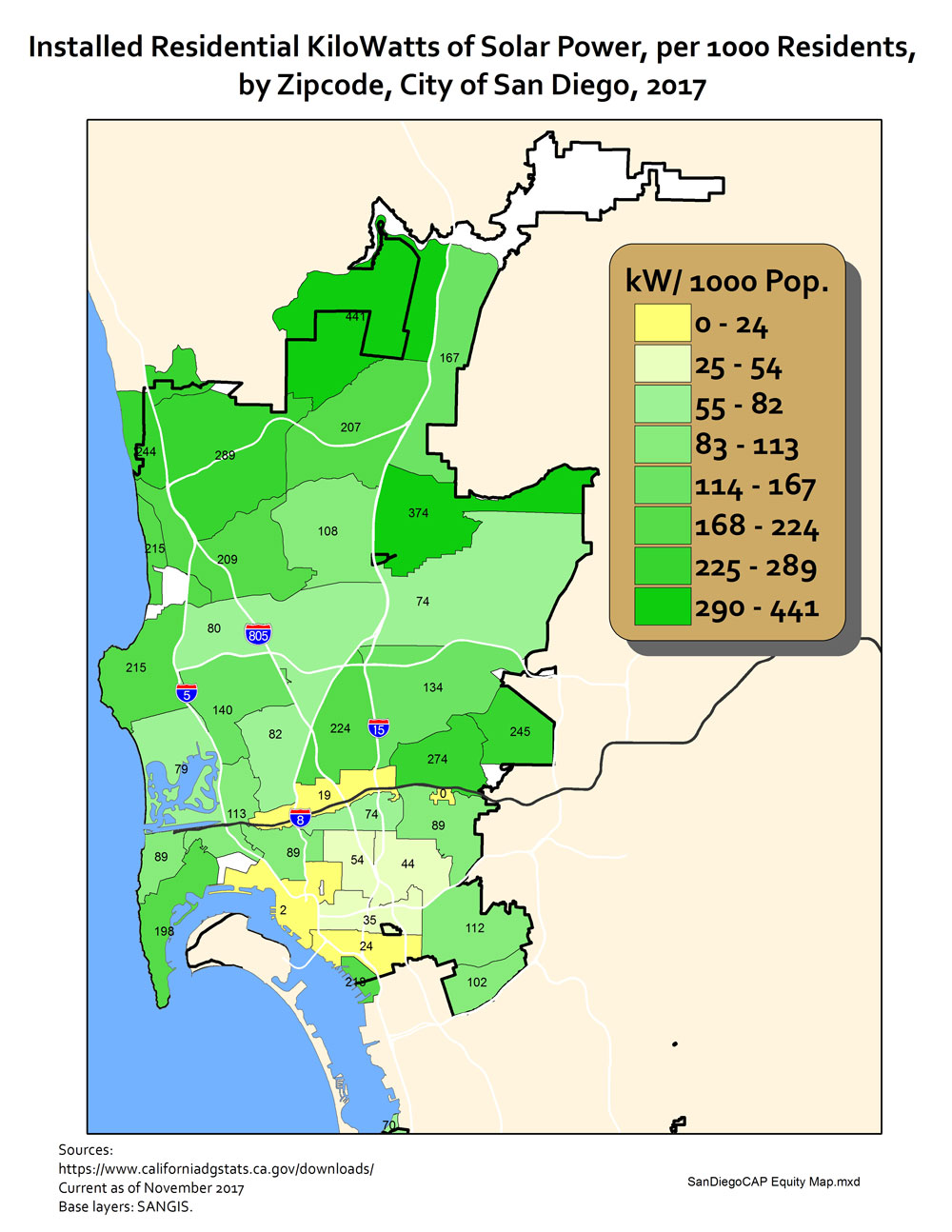 The map titled Installed Residential KiloWatts of Solar Power, per 1000 Residents, by Zipcode, City of San Diego, 2017 shows the geography of the number of kilowatts installed per 1,000 residents. The table titled Average Number of Solar Installations per 1000 people includes this metric and the average number of installations broken out by EJ communities, City, and non-EJ communities. Both statistics highlight that residential solar power installation in EJ communities is minimal.
The map titled Installed Residential KiloWatts of Solar Power, per 1000 Residents, by Zipcode, City of San Diego, 2017 shows the geography of the number of kilowatts installed per 1,000 residents. The table titled Average Number of Solar Installations per 1000 people includes this metric and the average number of installations broken out by EJ communities, City, and non-EJ communities. Both statistics highlight that residential solar power installation in EJ communities is minimal.
A study done by the California Energy Commission identified barriers and recommendations to bridge the clean energy gap for low-income customers and small business contracting opportunities in disadvantaged communities. The structural barriers identified include low home ownership rates, insufficient access to capital, and aged buildings. The report by the California Energy Commission is an excellent guide to inform the implementation of the San Diego CAP.
• Contact Caro This email address is being protected from spambots. You need JavaScript enabled to view it. or call 619-474-0220 ext 131
• DONATE to EHC
Solar on Multifamily Affordable Housing (SOMAH)
In 2015, the California Environmental Justice Alliance together with the Center for Sustainable Energy, GRID Alternatives, and the Association for Energy Affordability, with the support of EJ allies like Environmental Health Coalition (EHC) secured passage of California Assembly Bill 693. This legislation created Solar on Multifamily Affordable Housing (SOMAH) program, which provides up to $1 billion to install solar in disadvantaged communities across the state. SOMAH is the largest investment in solar in the country, and the majority of bill savings and benefits will go to tenants while providing paid solar job training opportunities.
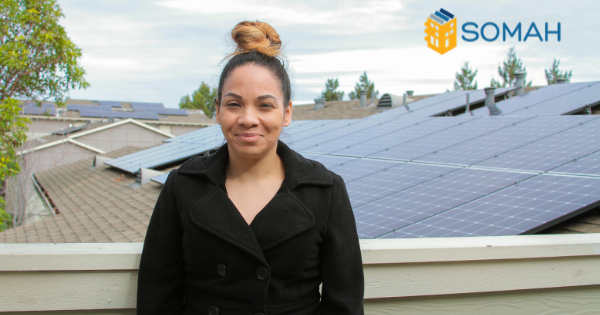
EHC will support SOMAH’s implementation through targeted outreach and engagement activities aimed at ensuring our EJ communities gain access to the full benefits of solar, including access to renewable energy, reduced utility bills, job training opportunities and economic development.
Are you a renter living in affordable housing? Do you want to help bring clean energy and jobs to your community? Here’s how you can learn more and get involved:
Thank you for signing up for our newsletter!
Environmental Health Coalition (EHC) works for environmental justice in the San Diego/Tijuana region and throughout California. Founded in 1980, EHC has worked to reduce pollution and improve health and well-being for thousands of people in underserved, low-income communities.
We believe that all people and communities have the right to live, work and play in a clean and safe environment regardless of their ZIP code.
EHC's local work supports residents in low-income, ethnically diverse communities including Barrio Logan, Sherman Heights, Logan Heights, City Heights, National City and Colonia Chilpancingo.
A common thread in all of EHC's campaigns is the recognition of the cumulative impacts of environmental, social, political and economic vulnerabilities that affect the quality of life in our communities.
We are committed to working with low-income communities and communities of color to:
Choose your curriculum
SALTA turns community members into local leaders with a nine-course training in community organizing, policy advocacy, community health, environmental justice and effective communication. Click here to download this free, online leadership-training curriculum in either English or Spanish.
View CurriculumCreating Healthy Neighborhoods is a free video guide and fun curriculum that uses real-life examples to show how everyday people can become advocates and activists for social and environmental justice. Click here for the free, online leadership-training tools to fight for justice with your community.
View CurriculumNEW: Proposed standard for naturally ocurring levels of lead in candy announced by California Office of Environmental Health Hazard Assessment (OEHHA):
If you manufacture or sell candy, please review the following important information.
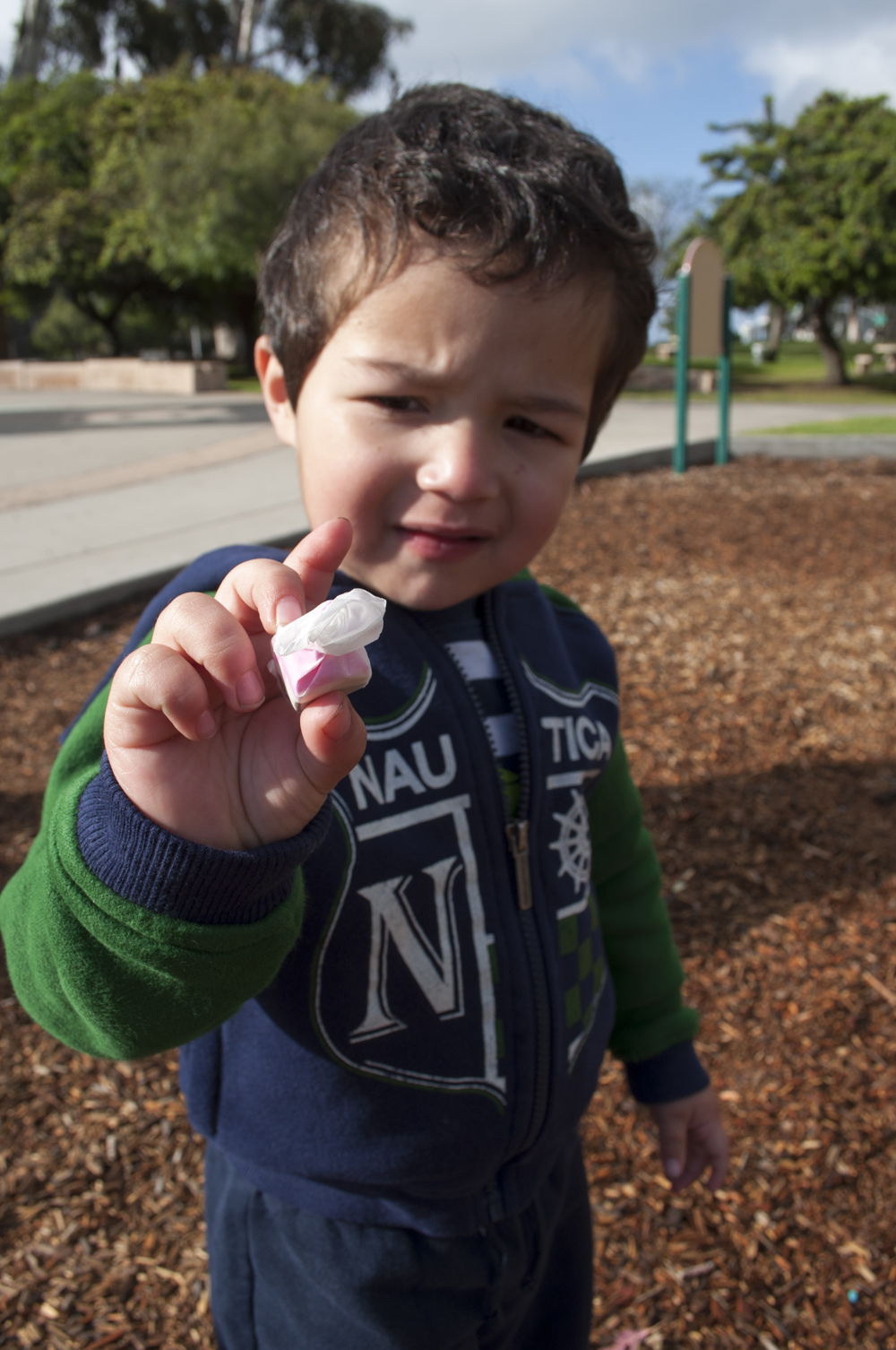
Facts about candy with lead
What to do if you sell candy
What to do if you manufacture candy
What to do if you manufacture candy:
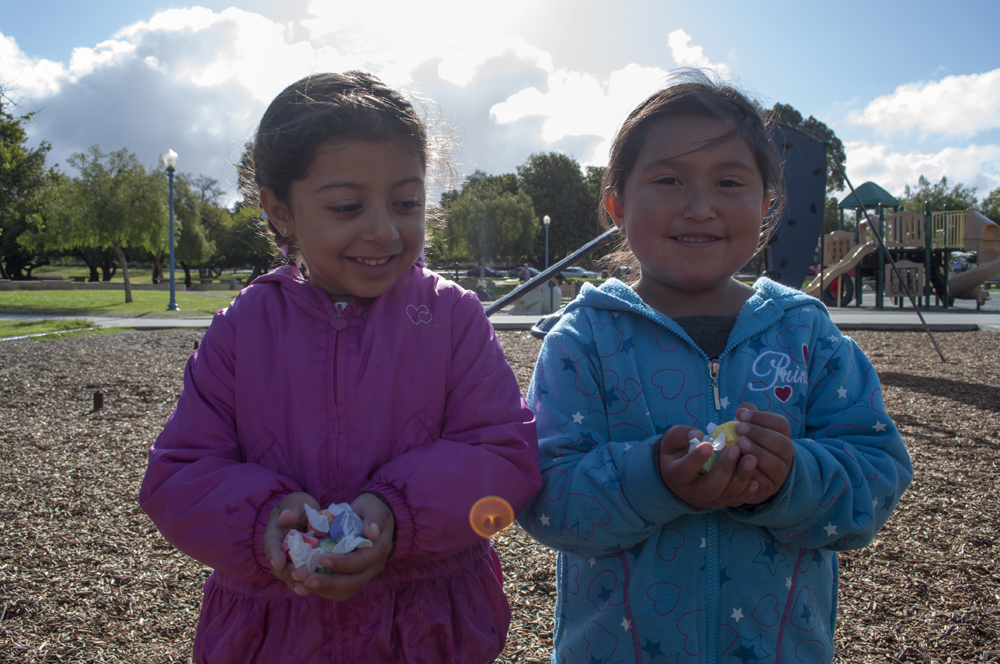 Lead-poisoning prevention is everyone's responsibility. Please join us in educating consumers, parents, teachers, school administrators, physicians and others about the hazards of lead in candies and proper precautions to avoid lead poisoning.
Lead-poisoning prevention is everyone's responsibility. Please join us in educating consumers, parents, teachers, school administrators, physicians and others about the hazards of lead in candies and proper precautions to avoid lead poisoning.
The following materials have been developed with the help of parents, health educators, community health workers and doctors. All materials can be copied and reproduced. Photographs may not be used outside of these materials.
For Consumers:
Frequently Asked Questions
Fact Sheet
For Manufacturers and Retailers:
Frequently Asked Questions
English information on state law compliance
Spanish information on state law compliance
Bliingual English/Spanish lead-free resources and auditor information
Bilingual English/Spanish window sticker
For Physicians and Healthcare Providers:
Thank you for visiting the national resource for lead-free candy. We know you care about children's health, so we've developed resources to answer all your questions about keeping your children healthy and safe.

Environmental Health Coalition, the California Attorney General's Office and partners spearheaded the movement to eliminate lead in candy. After a thorough investigation, lawsuit and a statewide law, California now requires candy manufacturers operate within strict legal standards and undergo regular audits to ensure compliance. As a result, candy sold in stores today has been tested for lead levels and certified as lead free.
View a list of popular candies that are lead free.
If you are a candy manufacturer, click here.

What is lead?
Lead is a dangerous metal, harmful to developing brains and responsible for irreversible developmental problems. Lead is most commonly found in the lead-based paint and paint chips from homes built before 1979. Children may get sick by breathing or ingesting dust from this paint as it chips or deteriorates over time.
Most children with lead poisoning do not look or act sick, which is why it's important to get a blood-lead test every year until age six as their brains are developing during this period. Please explore our website to learn more about lead poisoning in children and read our frequently asked questions about lead-free candy to learn how to keep your family healthy and safe.
Environmental Justice is the right of all people and communities to live, work, and play in a clean and safe environment.
Environmental Health Coalition fights against environmental racism which is defined as: policies and activities of governments, corporations, educational institutions or other large organizations with the power to influence many people that, either intentionally or unintentionally, result in people of color and/or low income people being exposed to greater environmental hazards.
In San Diego County, the relationship between race, income and pollution is quite clear as illustrated by this map that shows the greatest concentrations of people of color and low income people overlaid with facilities that emit air pollution (red dots) and facilities that utilize toxic chemicals or generate hazardous waste.
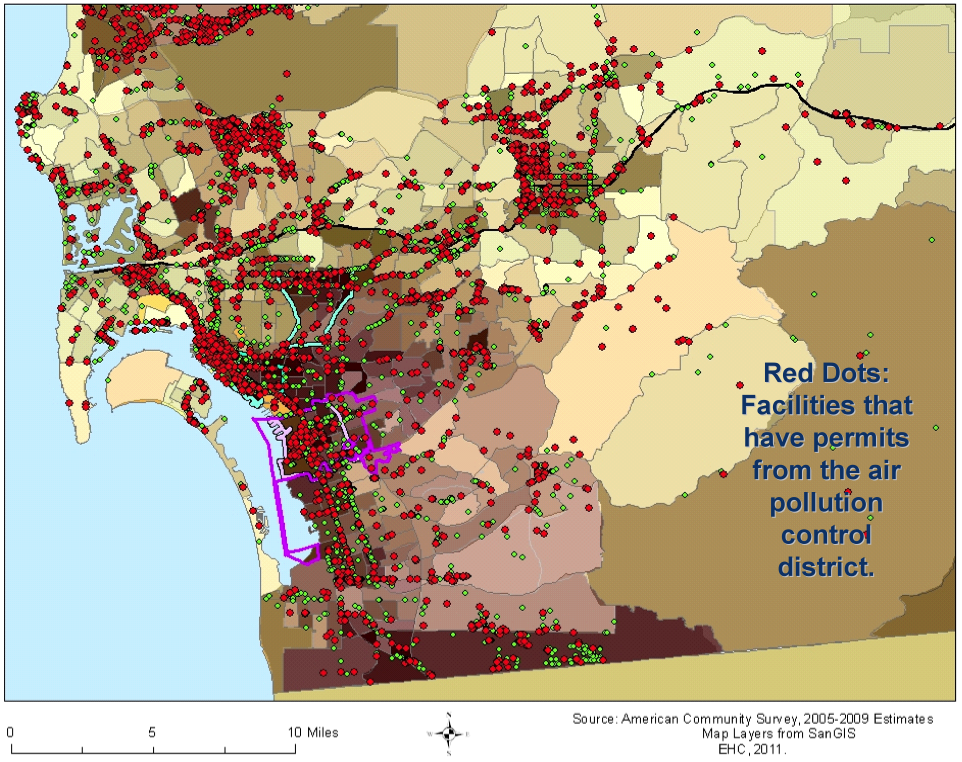
| Area | People of Color | Families in Poverty | Toxic Substances in Community |
| Barrio Logan | 97% | 35% | 127,908,799 pounds |
| La Jolla | 14% | 3% | 3,203,992 pounds |
California Environmental Justice Alliance
EHC is a founding member of the California Environmental Justice Alliance (CEJA), a statewide coalition of grassroots, environmental justice organizations. We are working to achieve environmental justice by organizing in low-income communities and communities of color – those most impacted by environmental hazards – and by pushing for policies at the federal, state, regional and local levels that protect public health and the environment.
CEJA unites the powerful local organizing efforts of members to create comprehensive opportunities for change at a statewide level. We combine grassroots organizing with strategic policy advocacy. Visit CEJA's website.
Building Healthy Communities from the Ground Up: Environmental Justice in California
Every day, California's low-income communities and communities of color face challenges from a disproportionate burden of toxics and pollution. Unequal political and legal rights worsen these conditions, due to a lack of community resources and exclusion of affected communities from public policy-making.
Building Healthy Communities from the Ground Up is an early publication of the California Environmental Justice Alliance which provide policy recommendations to build healthy communities and achieve environmental justice in California. Download the report.
Justice in the Air: Tracking Toxic Pollution from America's Industries and Companies to Our States, Cities, and Neighborhoods
By Michael Ash, James K. Boyce, Grace Chang, Manuel Pastor, Justin Scoggins, and Jennifer Tran[Ash, Boyce, and Chang are from the Political Economy Research Institute (PERI) at the University of Massachusetts, Amherst; Pastor, Scoggins, and Tran are from the Program for Environmental and Regional Equity (PERE) at the University of Southern California]
April 2009
With climate change threatening our way of life, dirty air triggering asthma, and industrial pollutants causing cancer, the nation is more motivated than ever before to take a hard look at the problems we face and seek new approaches that can better secure the future of the planet and save lives.
This study is one of the first to track, which states and metropolitan areas have the biggest gap between the health risk from toxic pollution faced by people of color and the poor compared to their proportion of the population. The results confirm what many Americans of color and low-income Americans have known for a long time: clean air is not necessarily an equal opportunity affair. Download the report.
The Climate Gap: Inequalities in How Climate Change Hurts Americans & How to Close the Gap
By Rachel Morello Frosch, Manuel Pastor, Jim Sadd, and Seth Shonkoff
May 2009
By now, virtually all Americans concur that climate change is real, and could pose devastating consequences for our nation and our children. Equally real is the "Climate Gap" – the sometimes hidden and often-unequal impact climate change will have on people of color and the poor in the United States. Download the report.
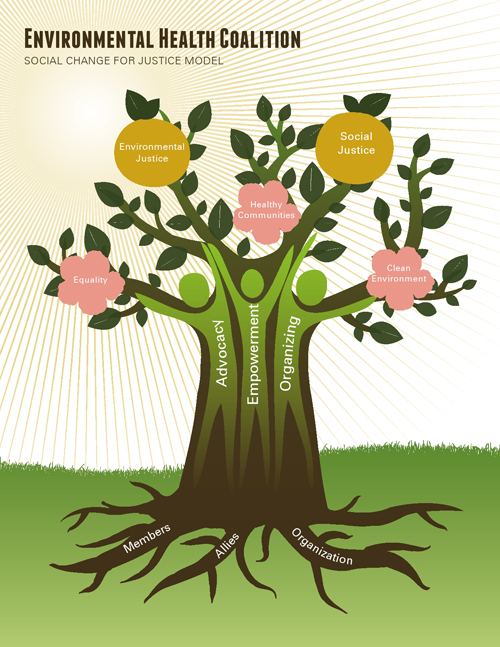 Social Change for Justice Model (SCFJ) is a framework integrating EHC's ideology and strategies to increase our ability to achieve social and environmental justice goals. The model incorporates all aspects of the EHC structure and method of work recognizing the critical importance and integration of our three core strategies: community organizing, policy advocacy and leader empowerment.
Social Change for Justice Model (SCFJ) is a framework integrating EHC's ideology and strategies to increase our ability to achieve social and environmental justice goals. The model incorporates all aspects of the EHC structure and method of work recognizing the critical importance and integration of our three core strategies: community organizing, policy advocacy and leader empowerment.
After over 30 years, we know a lot about what works and what doesn't. We know that we have a much better chance of accomplishing our goals by using a strategic, disciplined and deliberate approach. The model enhances the ability of EHC staff and community leaders to work effectively by increasing the consciousness with which the work is conducted and by providing clear guidance for how to do it.
The EHC Social Change for Justice Model guidance includes:
Organizing, advocacy and leader empowerment are fundamental to the work of many social justice organizations and change models. EHC has found that recognizing the unique nature and requirements of each strategy and intentionally integrating them results in stronger and more effective campaign outcomes.
EHC defines community organizing as "a values-based strategy that educates and empowers people to take action to win real improvements in their lives for the benefit of their communities and the common good."
The three major base-building tactics of organizing are:
Building -- Identifying and involving individuals who believe in EHC's Mission and Goals and who want to work to achieve specific changes in their communities
Mobilizing -- Activating members to take specific actions in order to demonstrate broad and deep support for EHC efforts
Maintaining -- Increasing participation, deepening commitment and expanding political consciousness of EHC members
EHC defines policy advocacy as "a values-based strategy that represents, champions and defends the public's interest and affected communities."
EHC advocacy efforts follow a Problem-Solution-Action flow described as:
Problem -- Conducting issue research and power analysis to understand the conditions and identify the injustice
Solution – Determining the best and most winnable solution to reach the desired goal
Action – Implementing a strategic plan with clear goals, objectives, tactics and targets
Since EHC's work supports our community base, leadership development is critical to achieving success. As EHC members become more deeply involved, they are invited to participate in EHC's signature leadership training, SALTA (Salud Ambiental Líderes Tomando Acción - Environmental Health, Leaders Taking Action). SALTA provides skills training on organizing, advocacy, power, and communications and educates about environmental health and justice issues.
Leaders who have completed SALTA are invited to become members of one of EHC's Community Action Teams (CAT). These teams are established in every EHC target community. CAT members are EHC leaders who guide the development and implementation of strategy for each campaign, program and effort. Some CAT members then join the EHC board of directors to guide the organization's vision and direction. Approximately 50% of board members are CAT members.
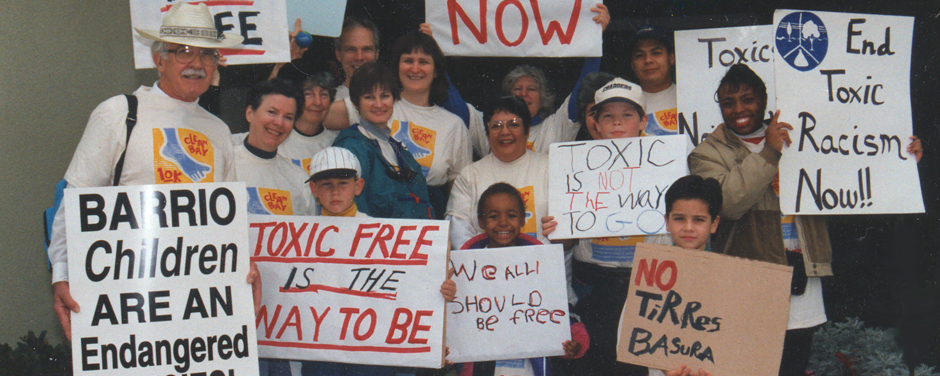
Environmental Health Coalition is dedicated to achieving environmental and social justice. We believe that justice is accomplished by empowered communities acting together to make social change. We organize and advocate to protect public health and the environment threatened by toxic pollution. EHC supports broad efforts that create a just society and fosters a healthy and sustainable quality of life.
Justice | To eliminate social and environmental injustice
Health | To eliminate environmental and public health degradation caused by toxic pollution
Environment | To preserve and protect the integrity of the ecosystem
Prevention | To establish the precautionary principle and pollution prevention as the basis of all environmental and public health policies
Government | To ensure broad government intervention to protect human and environmental rights
Corporate Accountability | To establish mandates holding corporations accountable for actions that affect the public
Organization | To build and maintain a strong, effective and sustainable organization based on respect, integrity, democratic participation in decision-making and ethical principles
Base | To build strong and authentic relationships with and develop leadership among individuals and organizations that share EHC’s ideology and goals
Allies | To work cooperatively to build effective local, state and national social justice alliances
Empowerment | To empower individuals with the ability and authority to achieve self-determination for themselves, their families and their communities
(Click image to enlarge)
The EHC Theory of Social Change describes the conditions that are necessary for authentic change to occur and determines the way EHC work is done. The key elements are: shared political consciousness/ideology, active and involved base of support, strategic analysis and action, and building a strong organization.
EHC implements its mission and goals through grassroots campaigns to confront the unjust consequences of toxic pollution, discriminatory land use, and unsustainable energy policies. Through leader development, organizing and advocacy, EHC empowers residents to achieve public policies that improve the health of children, families, neighborhoods and the natural environment in the San Diego/Tijuana region.
We officially founded Environmental Health Coalition in 1980 as the Coalition Against Cancer. Since that time, our knowledge has rapidly increased about the relationship between serious health effects and the chemicals used in homes and workplaces and often disposed of in neighborhoods.
Fast forward more than 30 years, Environmental Health Coalition has become a leader in the environmental justicemovement and a resource for community-based organizations working in the fields of environmental health and justice, social justice, human rights and environmental sustainability. We have come far and we have many goals for the future. Click to view a larger version of our history timeline.
Our cutting-edge strategies have led to first-ever achievements, including:
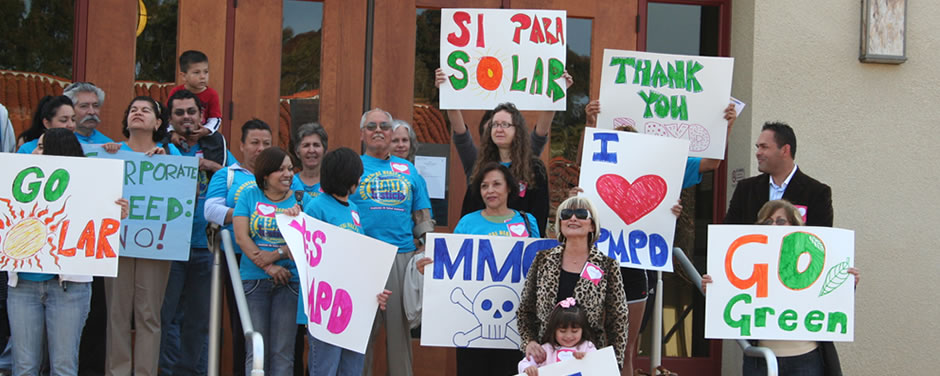
Environmental Health Coalition engaged in an intensive strategic planning process with staff, board members, and community leaders that resulted in a ten-year vision.
This plan, Building Power to Win: Strategic Vision 2008-2018, provides an overview of EHC's major victories and introduces our approaches to community organizing, policy advocacy, leader empowerment, and organizational sustainability.
The dynamics of poverty, institutionalized racism and unresponsive governmental policies intersect and increase the severity of these issues in our communities. The lack of power and resources are a challenge for engaging in public policy decision-making. EHC has repeatedly met that challenge by building community and organizational power.
Community power comes from empowering the people who bear the impact and providing them with the skills, resources and information they need to win justice in their communities.
Organizational power comes from a talented, dedicated and persistent staff and board of directors, who bring a diversity of expertise and experience.
Power also requires resources--funding is essential. From the $5 contribution to the $50,000 grant, we efficiently spend every dollar to improve lives, and we deeply appreciate the support.
Completely reintermediate emerging products whereas B2C scenarios. Continually engage principle-centered innovation vis-a-vis leveraged leadership skills. Collaboratively engineer enabled niche markets via granular internal or "organic" sources. Proactively visualize empowered benefits vis-a-vis cost effective best practices.
Environmental Health Coalition is governed by a board of directors comprised of community members, environmental health experts and representatives from allied organizations. Various campaign advisory boards nominate new members, and the current board members elect them.
Margaret Godshalk, President
Educator, National School District (retired)
 Margaret is a life-long resident of National City and has been a school teacher at Kimball Elementary for more than 20 years. She first became involved with EHC in the late 1980’s when she field-tested our Household Toxics curriculum with her fourth grade students. Over the years the intersection of her interests with EHC’s work continued to grow - from eliminating the toxic pollution in her community to protecting the Paradise Creek Watershed to developing new community leaders. Margaret became a Board Member in 1996 and was elected President in 2010. Margaret is a member of EHC’s Old Town-National City Toxic-Free Neighborhoods Community Action Team. She and her husband Ted are the founders of the Paradise Creek Educational Park.
Margaret is a life-long resident of National City and has been a school teacher at Kimball Elementary for more than 20 years. She first became involved with EHC in the late 1980’s when she field-tested our Household Toxics curriculum with her fourth grade students. Over the years the intersection of her interests with EHC’s work continued to grow - from eliminating the toxic pollution in her community to protecting the Paradise Creek Watershed to developing new community leaders. Margaret became a Board Member in 1996 and was elected President in 2010. Margaret is a member of EHC’s Old Town-National City Toxic-Free Neighborhoods Community Action Team. She and her husband Ted are the founders of the Paradise Creek Educational Park.
Working with the Environmental Health Coalition enriches her life. Margaret enjoys camping, biking and kayaking with the "Creek Kids" on bird-watching excursions.
Enrique Medina, Vice President
Alliance Consulting International
 Enrique joined the EHC Board of Directors in 2009. As an environmental and occupational health and safety professional with more than 20 years of international experience, he served as the technical advisor to EHC’s Tijuana Community Action Team, the Colectivo Chilpancingo Pro Justicia Ambiental, for the cleanup of the Metales y Derivados toxic site. He is a California Air Resources Board accredited Lead Verifier for Greenhouse Gas Emission reports. Enrique is a member of the Border Environmental Justice Campaign’s Community Action Team.
Enrique joined the EHC Board of Directors in 2009. As an environmental and occupational health and safety professional with more than 20 years of international experience, he served as the technical advisor to EHC’s Tijuana Community Action Team, the Colectivo Chilpancingo Pro Justicia Ambiental, for the cleanup of the Metales y Derivados toxic site. He is a California Air Resources Board accredited Lead Verifier for Greenhouse Gas Emission reports. Enrique is a member of the Border Environmental Justice Campaign’s Community Action Team.
Enrique been a strong supporter of EHC's mission for a long time and has worked with some of the staff on and off on over the years. However, since joining the Board of Directors, he has had the opportunity to observe the organization from within more closely. He looks forward to every board meeting for the chance to listen to thoughtful positions on issues that affect our lives and to see these ideas turn into successful actions with tangible benefits for our communities.
Dan McKirnan, Ph.D., Treasurer
Biomedical Scientist
 Dan is a Consultant in Preclinical Research and Development and a former research faculty member at the UCSD School of Medicine. His research has focused on cardiovascular disease. Dan’s love of the natural world and his commitment to environmental protection led to his strong connection with EHC. Dan was a founding member of the Clean Bay Campaign in 1985 and he has continued to serve as a member of the Community Action Team for the Campaign focused on the cleanup, restoration and protection of San Diego Bay. Dan serves as a member of the Finance Team and the Fund Development Committee.
Dan is a Consultant in Preclinical Research and Development and a former research faculty member at the UCSD School of Medicine. His research has focused on cardiovascular disease. Dan’s love of the natural world and his commitment to environmental protection led to his strong connection with EHC. Dan was a founding member of the Clean Bay Campaign in 1985 and he has continued to serve as a member of the Community Action Team for the Campaign focused on the cleanup, restoration and protection of San Diego Bay. Dan serves as a member of the Finance Team and the Fund Development Committee.
He continues to be inspired by the work of EHC’s staff, community volunteers and Promotoras who fight for healthy communities and environmental and social justice. Dan enjoys health and fitness activities and is a member of the San Diego Flyfishers.
Roberta Alexander, PhD, Secretary
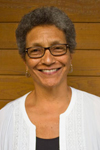 Roberta Alexander served as a faculty member in the San Diego Community College District for over 35 years. She served as Department Chair for English as a Second Language in Continuing Education at Centre City Adult School, and Department Chair of English at San Diego City College. At City College, she taught in the Chicano Studies, English, and Black Studies Departments. Roberta served as the coordinator of the Labor Studies Program, which under her leadership initiated Occupational Safety and Health classes. She oversaw the San Diego City College Accreditation report and served as President of the Academic Senate.
Roberta Alexander served as a faculty member in the San Diego Community College District for over 35 years. She served as Department Chair for English as a Second Language in Continuing Education at Centre City Adult School, and Department Chair of English at San Diego City College. At City College, she taught in the Chicano Studies, English, and Black Studies Departments. Roberta served as the coordinator of the Labor Studies Program, which under her leadership initiated Occupational Safety and Health classes. She oversaw the San Diego City College Accreditation report and served as President of the Academic Senate.
She is excited to be a member of the Board of Directors of EHC because of the strong community involvement in the programs.
Beatriz Barraza
Colaborativo Saber, Retired
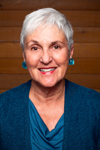 Bea joined the EHC Board of Directors in 1987 and served as President from 1990 until 2010. She is currently Chair of EHC’s Fund Development Committee. Bea has a background in maternal, child, and community health, and was instrumental in developing the “Promotora” model for peer-to-peer community health promotion. In 1996, she helped adapt this model for EHC’s first SALTA leadership training program. Bea has served on many advisory committees, including the tri-national Expert Advisory Board on Children’s Health and the Environment for the Commission on Environmental Cooperation and the Children’s Health Protection Committee of the U.S. EPA.
Bea joined the EHC Board of Directors in 1987 and served as President from 1990 until 2010. She is currently Chair of EHC’s Fund Development Committee. Bea has a background in maternal, child, and community health, and was instrumental in developing the “Promotora” model for peer-to-peer community health promotion. In 1996, she helped adapt this model for EHC’s first SALTA leadership training program. Bea has served on many advisory committees, including the tri-national Expert Advisory Board on Children’s Health and the Environment for the Commission on Environmental Cooperation and the Children’s Health Protection Committee of the U.S. EPA.
Following her retirement from Colaborativo Saber, Bea became a docent at the San Diego Museum of Art where she has the opportunity to share her love of art, particularly Mexican and Latin American art.
Terry Bunting
Labor Representative
California Nurses Association-National Nurses United
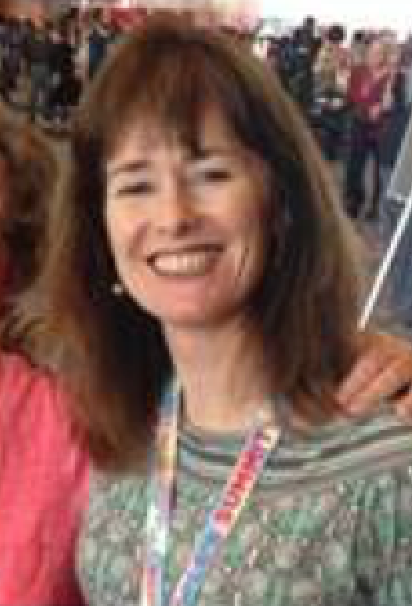 Terry Bunting has been a Labor Representative with the California Nurses Association-National Nurses United for nearly 15 years, working to protect the rights of registered nurses in their roles as patient advocates. CNA-NNU has led the fight for single-payer healthcare, protection of Social Security and many campaigns to protect and enhance our social safety net. CNA-NNU nurses speak out over the many threats to public health of environmental pollution and inadequate access to healthcare.
Terry Bunting has been a Labor Representative with the California Nurses Association-National Nurses United for nearly 15 years, working to protect the rights of registered nurses in their roles as patient advocates. CNA-NNU has led the fight for single-payer healthcare, protection of Social Security and many campaigns to protect and enhance our social safety net. CNA-NNU nurses speak out over the many threats to public health of environmental pollution and inadequate access to healthcare.
Born and raised in San Diego, Terry grew up in City Heights and Oak Park neighborhoods, and graduated from San Diego State University with a degree in social science with an emphasis in the environment. Terry has worked in labor advocacy over 20 years and is passionate about fighting for workers’ rights, public health and environmental justice.
Marry Grillo
Retired, SEIU
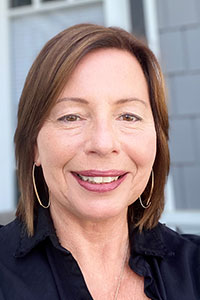 Grillo recently retired from SEIU after 35 years of fighting for economic justice for working people. Ms. Grillo spent 20 years advocating for the rights of local government employees, janitorial workers, and healthcare workers with SEIU in San Diego and Riverside counties. During that time, she was elected as the Executive Director for Local 2028 in San Diego from 1996-2005. In 2006, she went on to work for SEIU International Union supporting regional and local unions' efforts to organize for the rights of workers.
Grillo recently retired from SEIU after 35 years of fighting for economic justice for working people. Ms. Grillo spent 20 years advocating for the rights of local government employees, janitorial workers, and healthcare workers with SEIU in San Diego and Riverside counties. During that time, she was elected as the Executive Director for Local 2028 in San Diego from 1996-2005. In 2006, she went on to work for SEIU International Union supporting regional and local unions' efforts to organize for the rights of workers.
In addition to her work with SEIU, Ms. Grillo co-founded the Center on Policy Initiatives in 1997 and worked with the Interfaith Committee for Worker Justice. Since her retirement, Ms Grillo has been active at the San Diego Museum of Art as a Docent, served as a volunteer for the San Diego Rapid Response team for immigrants seeking asylum in the US and served as a board member of Alliance San Diego.
Ruth Heifetz, M.D., M.P.H.
Senior Lecturer
UCSD School of Medicine
 Ruth M. Heifetz is a founding member of Environmental Health Coalition. She is a physician and humanitarian. Ruth was inducted into the San Diego County’s Hall of Fame of the Women’s History Museum in 2005 as a trailblazer for occupational health and environmental justice. For more than 30 years, she has fought for the health of families exposed to toxic materials in their communities and workplaces. Preventing harm has always been her priority, from promoting pesticide reduction policies to fighting for the cleanup of San Diego Bay to educating women about the impacts of toxic chemicals. Ruth serves on EHC’s Fund Development Committee.
Ruth M. Heifetz is a founding member of Environmental Health Coalition. She is a physician and humanitarian. Ruth was inducted into the San Diego County’s Hall of Fame of the Women’s History Museum in 2005 as a trailblazer for occupational health and environmental justice. For more than 30 years, she has fought for the health of families exposed to toxic materials in their communities and workplaces. Preventing harm has always been her priority, from promoting pesticide reduction policies to fighting for the cleanup of San Diego Bay to educating women about the impacts of toxic chemicals. Ruth serves on EHC’s Fund Development Committee.
Ruth finds the dedication and wisdom of EHC staff and community leaders inspiring. Ruth enjoys working to make people’s homes, workplaces and neighborhoods safer and healthier places for all.
Roddy Jerome
Community Member
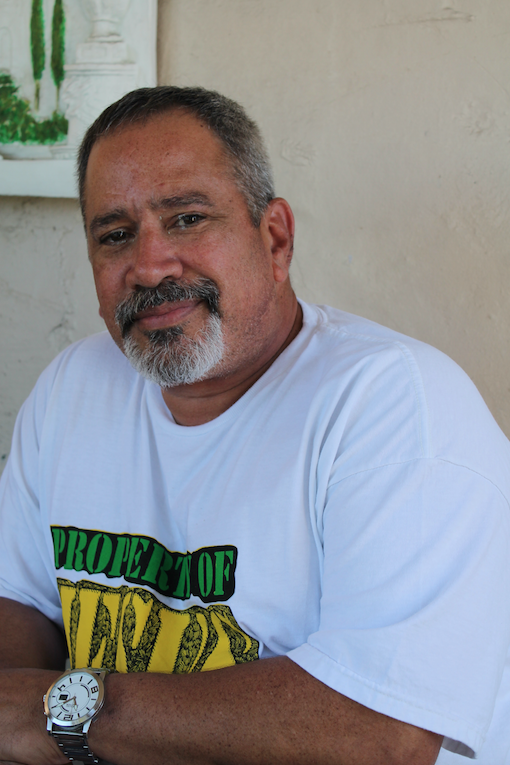 Originally from Hawaii but now a resident of City Heights, Roddy Jerome has a vested interest in what goes on in his community. In 2011, he started to attend EHC community meetings in City Heights to learn about how his neighborhood and the entire region is impacted by dirty energy, lack of good transportation and a variety of other environmental justice issues. In 2013, Roddy attended and testified at state energy hearings, San Diego City Council committees about the City's climate action plan, SANDAG hearings about the Mid-City bike corridor and in Sacramento to lobby state legislators.
Originally from Hawaii but now a resident of City Heights, Roddy Jerome has a vested interest in what goes on in his community. In 2011, he started to attend EHC community meetings in City Heights to learn about how his neighborhood and the entire region is impacted by dirty energy, lack of good transportation and a variety of other environmental justice issues. In 2013, Roddy attended and testified at state energy hearings, San Diego City Council committees about the City's climate action plan, SANDAG hearings about the Mid-City bike corridor and in Sacramento to lobby state legislators.
The aspect of community advocacy Roddy enjoys most is knocking on doors and informing his friends and neighbors about the common issues that affect all of us, urging them to get involved. Roddy continues his involvement with City Heights and EHC and is a perfect example of social change for justice.
Sonia Ruan
Principal, National School District
Sonia Ruan has been transforming National City one classroom at a time. As Principal of Kimball Elementary School, Sonia is an important leader in her neighborhood, currently overseeing a dual-language immersion program for her elementary students.
With more than 15 years of experience as an educator, Sonia connects deeply with EHC’s mission to empower our community members to be leaders for environmental justice. Sonia also has nearly a decade of national park ranger experience, giving her a personalized understanding of environmental justice as a place where climate change and social equity intersect.
Our 2008-2018 Strategic Vision reaffirms our commitment to leadership development as a core strategy. Our popular education SALTA trainings support grassroots leaders in our Community Action Teams (CATs) by building knowledge, skills and solidarity. CAT members frequently increase their activity by becoming EHC Board members, EHC Promotoras, and leaders in their communities.
Promotoras spend additional time assisting EHC’s campaigns. Their responsibilities vary, but may include office assistance, home visits and assessments for healthy homes, or organizing community members.
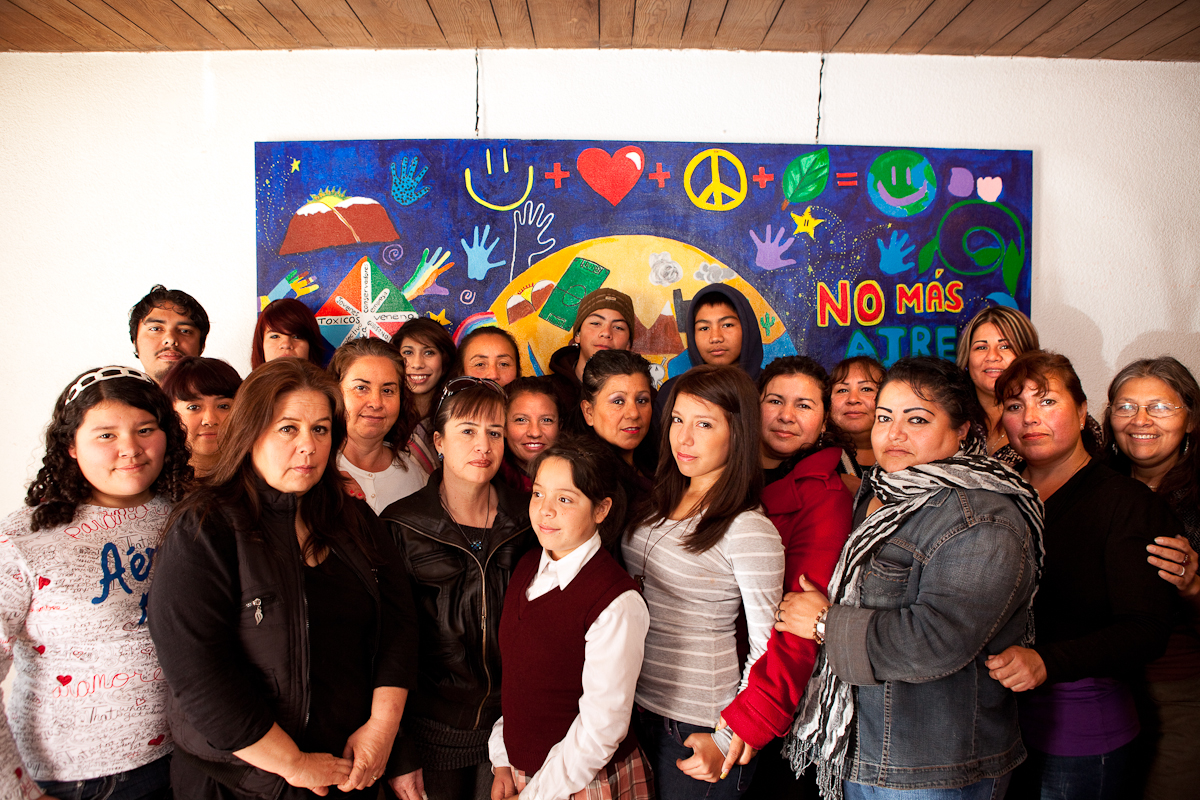
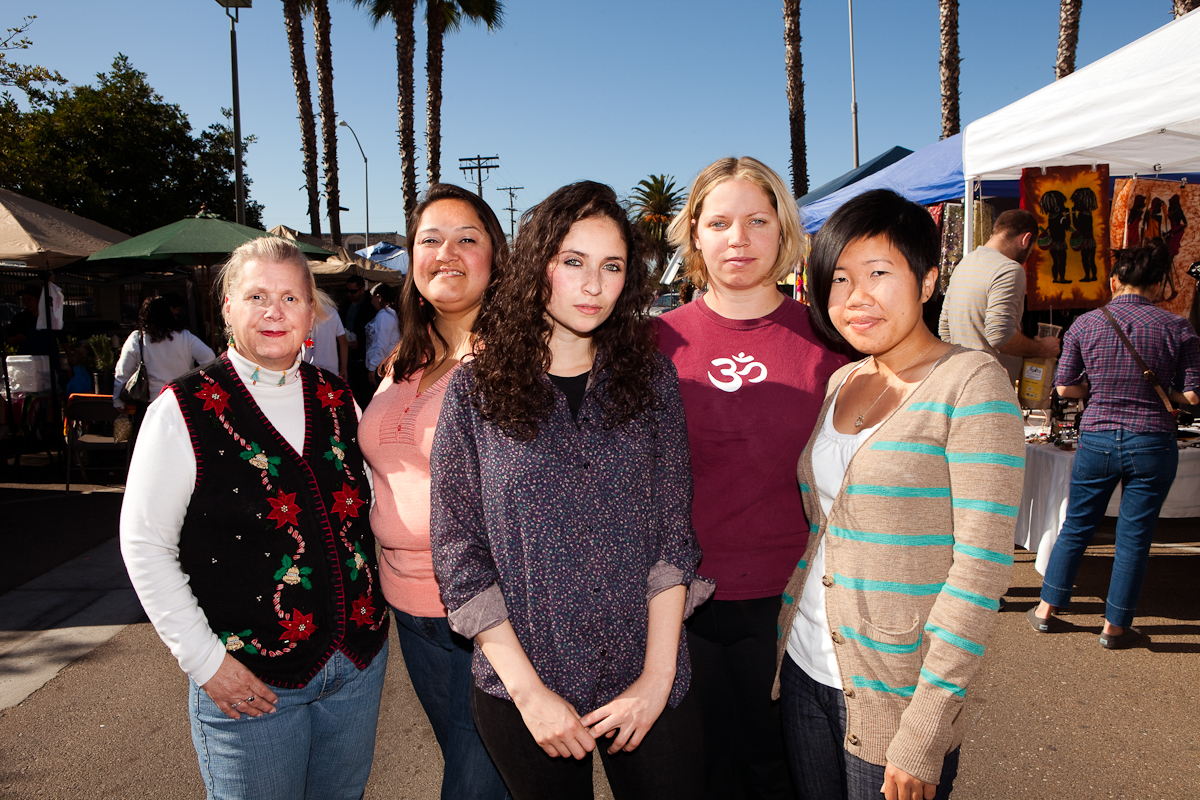
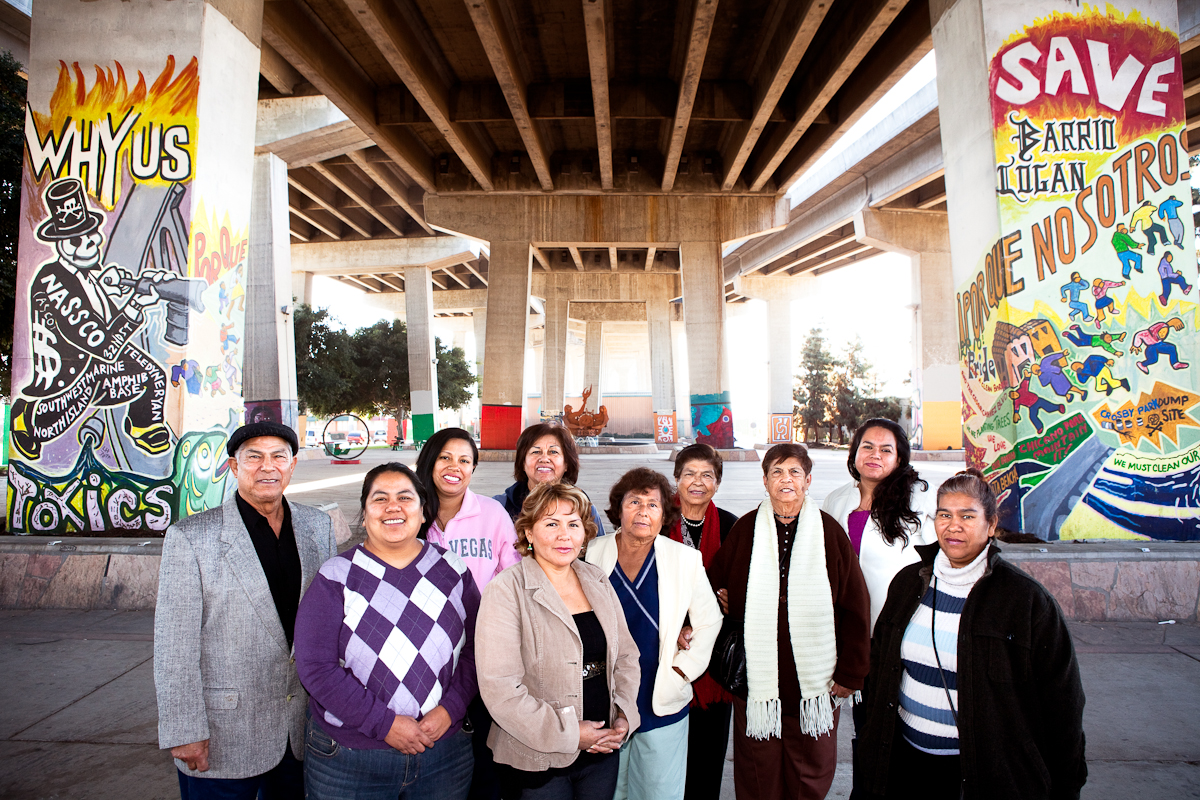
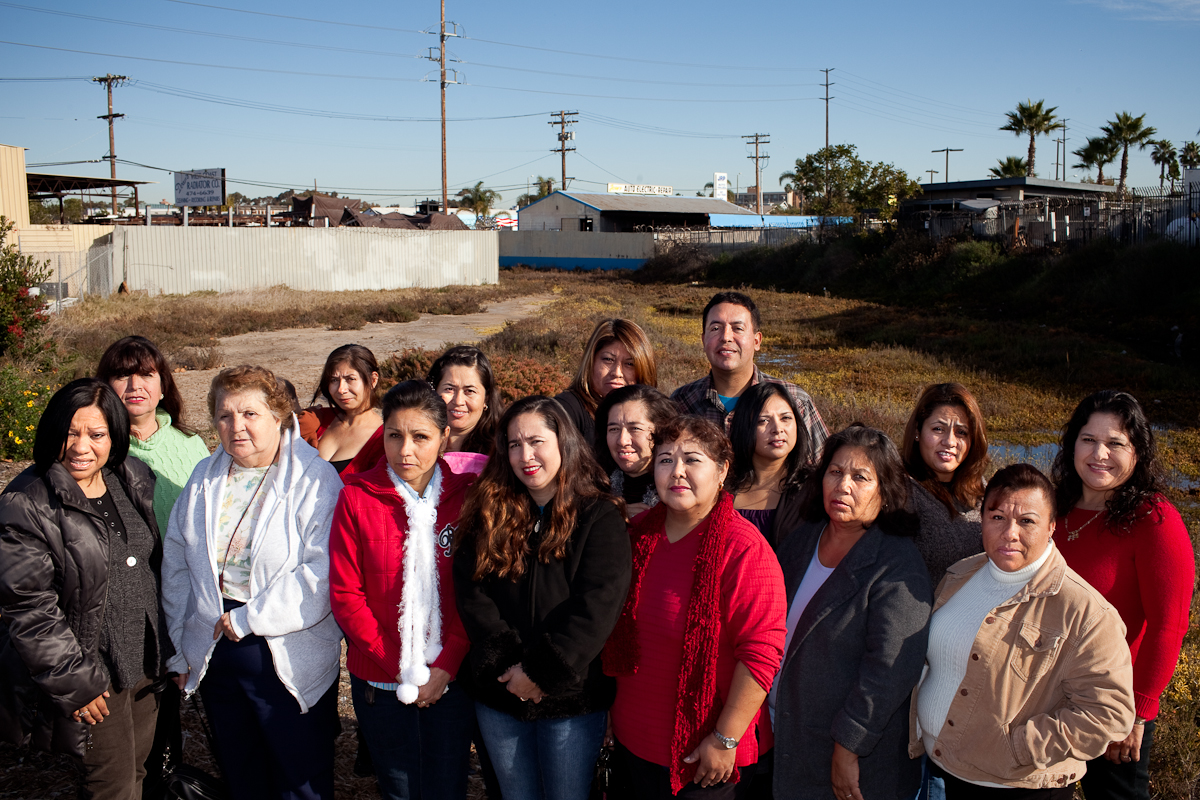
Alejandra “Allie” Fen
Community Organizer, Barrio Logan
 Allie joined EHC in 2020. She has a B.A. from UC Berkeley and a Master’s in Education from MSU Billings. She started creating social change as a fundraising field manager for Environment California and later coordinated clean energy campaigns for the California Public Interest Research Group. After working in adult education for several years, Allie came to EHC to help people develop skills to engage in their democracy and stand up for themselves, protecting their families and communities from health risks and increasing access to economic opportunity.
Allie joined EHC in 2020. She has a B.A. from UC Berkeley and a Master’s in Education from MSU Billings. She started creating social change as a fundraising field manager for Environment California and later coordinated clean energy campaigns for the California Public Interest Research Group. After working in adult education for several years, Allie came to EHC to help people develop skills to engage in their democracy and stand up for themselves, protecting their families and communities from health risks and increasing access to economic opportunity.
In her free time, Allie loves swing dancing, running, cooking, and spending time with her husband and friends.
This email address is being protected from spambots. You need JavaScript enabled to view it., (619) 474-0220 ext. 130; Mobile: (530) 401-8095
Angelica Estrada
Communications Director
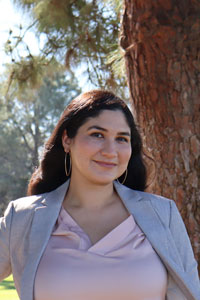 The daughter of an immigrant and a Southern California native, Angelica Alicia Estrada, is committed to empowering underserved communities to successfully advocate for social and environmental justice. Angelica joined Environmental Health Coalition (EHC) in 2020 as the Communications Director. She has more than half a decade of strategic communications experience, helping local and national organizations expand their reach and impact. She started her career working with nonprofits in Los Angeles county, gaining some experience in the entertainment industry, then transitioned to a public affairs firm out of Orange County. Before joining EHC, Angelica was the Marketing and Communications Manager at Sepsis Alliance, a national nonprofit, where she led targeted multimedia marketing campaigns.
The daughter of an immigrant and a Southern California native, Angelica Alicia Estrada, is committed to empowering underserved communities to successfully advocate for social and environmental justice. Angelica joined Environmental Health Coalition (EHC) in 2020 as the Communications Director. She has more than half a decade of strategic communications experience, helping local and national organizations expand their reach and impact. She started her career working with nonprofits in Los Angeles county, gaining some experience in the entertainment industry, then transitioned to a public affairs firm out of Orange County. Before joining EHC, Angelica was the Marketing and Communications Manager at Sepsis Alliance, a national nonprofit, where she led targeted multimedia marketing campaigns.
Angelica graduated Cum Laude from California State University Northridge, where she studied Political Science and received the Academic Excellence Award. In her free time, Angelica can be found exploring California’s eclectic communities, hunting down new restaurants, and dreaming of her next adventure with her husband and son.
This email address is being protected from spambots. You need JavaScript enabled to view it., (619) 474-0220 ext. 105; Mobile: (562) 708-3093
Aníbal Méndez
Campaign Director, Border Environmental Justice Campaign
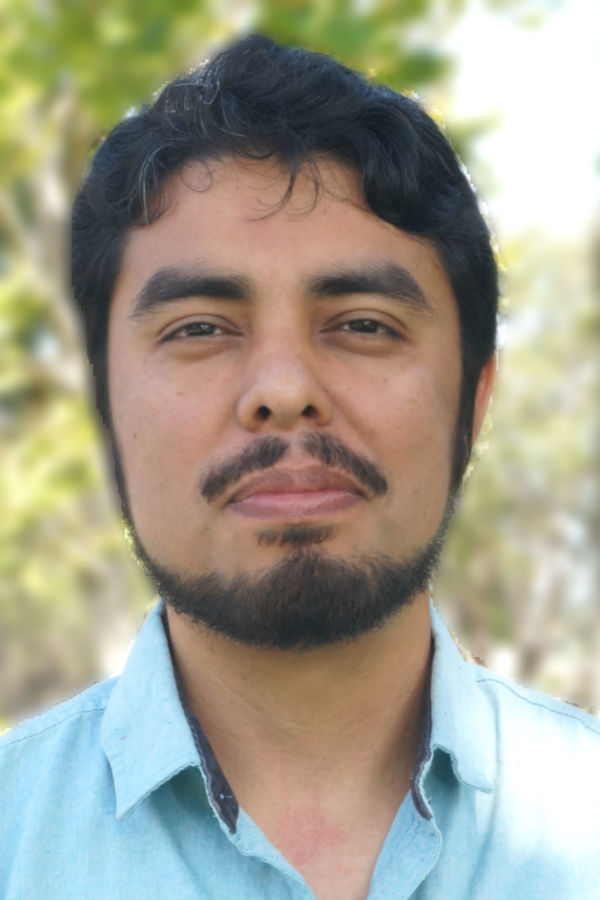 Aníbal joined EHC in 2008 as the Youth Group Coordinator for our Tijuana Community Action Team. He has a degree in psychology, is a graphic and webpage designer, a musician and composer, and has been a teacher, therapist, radio spokesperson, and video performer.
Aníbal joined EHC in 2008 as the Youth Group Coordinator for our Tijuana Community Action Team. He has a degree in psychology, is a graphic and webpage designer, a musician and composer, and has been a teacher, therapist, radio spokesperson, and video performer.
Aníbal enjoys seeing the community members develop and increase their commitment to each other and to improving the quality of life in their community. His personal interests include music, movies, reading and sports.
This email address is being protected from spambots. You need JavaScript enabled to view it., (619) 474-0220 ext. 119; Mobile: (619) 884-0166
Carolina Martínez
Climate Justice Director
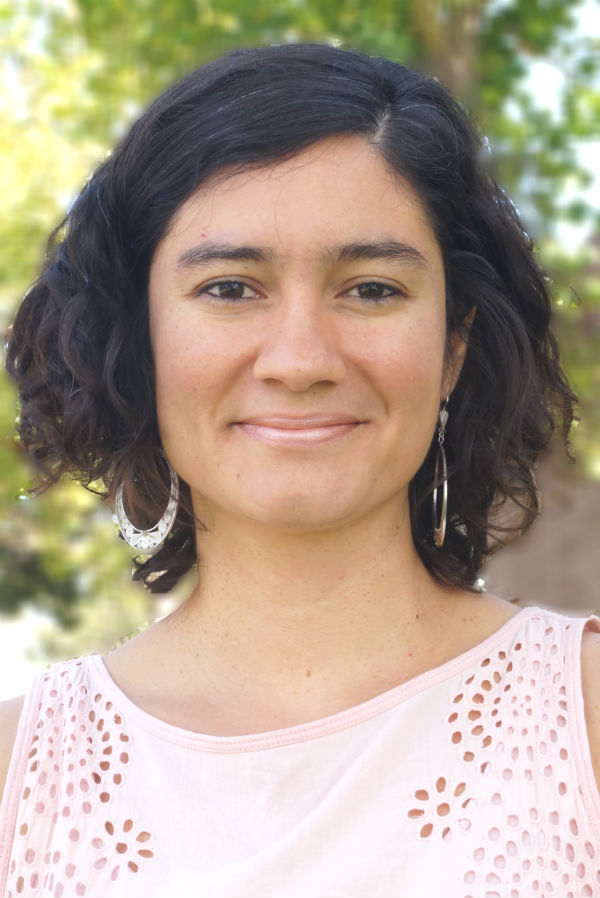
a
Carolina works together with residents in low-income communities of color to advocate for climate and land use policies that respect their priorities, improve health, and are consistent with environmental justice principles. For 8 years she worked with National City residents implementing a comprehensive community plan that phased out polluting industries out of a residential neighborhood and created an affordable housing project. Currently, she is advancing the equitable implementation of San Diego’s Climate Action Plan.
Caro is a proud Colombian immigrant who enjoys working at the intersection of liberation, race, culture, gender, civic engagement, environmental issues, health and city planning in the struggle for environmental justice. Carolina has M.A.s in Urban Planning and Latin American Studies and spends her free time learning to play Son Jarocho and dance Puerto Rican Bomba.
This email address is being protected from spambots. You need JavaScript enabled to view it., (619) 474-0220 ext. 131
Clay Myers-Bowman
Fund Development Manager
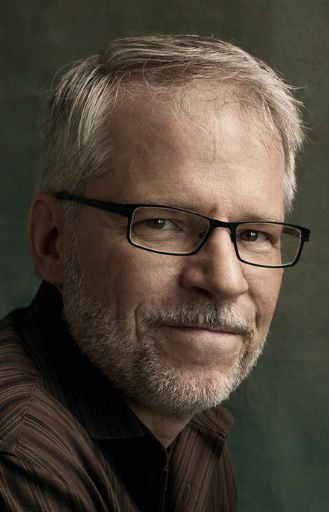
Clay Myers-Bowman joined Environmental Health Coalition as Fund Development Manager in August, 2019. He is an award-winning leader who has spearheaded dozens of projects (from New York to California, from Minnesota to Colorado, and from Kansas to Sweden and Norway) over the past 30 years.
He’s worked for, consulted with, and served on the boards of arts and cultural groups, human service agencies, educational institutions, disaster relief agencies, and an event management company. This experience, coupled with strong philanthropic values and ethics, has enabled him to help nonprofit organizations advance their mission and carry out successful fundraising campaigns and events.
This email address is being protected from spambots. You need JavaScript enabled to view it., (619) 474-0220 ext. 118
Danny Serrano
Campaign Director, Toxic-Free Neighborhoods
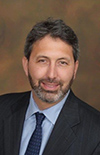 Danny joined the EHC in 2020 as the Toxic-Free Neighborhoods Campaign Director. Danny is a bilingual land use/environmental specialist born in Mexico and raised in southern California with over 12 years of experience in long range planning, environmental impact analysis, and housing development.
Danny joined the EHC in 2020 as the Toxic-Free Neighborhoods Campaign Director. Danny is a bilingual land use/environmental specialist born in Mexico and raised in southern California with over 12 years of experience in long range planning, environmental impact analysis, and housing development.
Danny attended the University of Granada (Spain), received his Bachelors in Latin American & Iberian Studies from UC Santa Barbara, and has a Masters in City Planning from SDSU.
This email address is being protected from spambots. You need JavaScript enabled to view it., (619) 474-0220 ext. 104; Mobile: (619) 850-1527
Diane Takvorian
Executive Director
 Diane is one of the founders of EHC and has been its Executive Director since 1982. She holds a Masters degree in Social Work with an emphasis on public policy and community organizing. As a major force behind the environmental justice movement, Diane has served on international, national, state, and regional advisory boards. In 2009, President Obama appointed her to the Joint Public Advisory Committee for the NAFTA Commission for Environmental Cooperation. In July 2008 Diane received the James Irvine Foundation Leadership Award for her "creative and inspirational leadership benefiting the people of California."
Diane is one of the founders of EHC and has been its Executive Director since 1982. She holds a Masters degree in Social Work with an emphasis on public policy and community organizing. As a major force behind the environmental justice movement, Diane has served on international, national, state, and regional advisory boards. In 2009, President Obama appointed her to the Joint Public Advisory Committee for the NAFTA Commission for Environmental Cooperation. In July 2008 Diane received the James Irvine Foundation Leadership Award for her "creative and inspirational leadership benefiting the people of California."
Diane and her husband Bob enjoy adventure travel, working on the native plant landscaping in their yard, and Diane's cooking specialty is vegetarian soups.
This email address is being protected from spambots. You need JavaScript enabled to view it., (619) 474-0220 ext. 112; Mobile: (619) 992-0805
Dominique Navarro
Fund Development & Sustainability Director
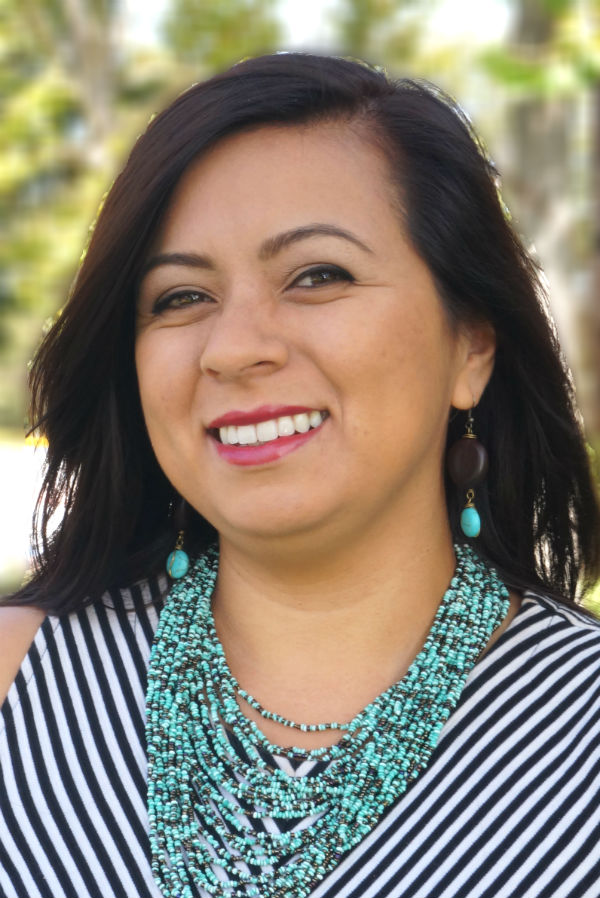 Dominique joined EHC's development team in 2016 after working with various partners including the Center on Policy Initiatives and The San Diego Foundation Center for Civic Engagement in functions including grant writing, event planning, and community outreach. She has always been passionate about social and environmental justice and has worked on environmental education efforts in the U.S., Costa Rica and Mozambique.
Dominique joined EHC's development team in 2016 after working with various partners including the Center on Policy Initiatives and The San Diego Foundation Center for Civic Engagement in functions including grant writing, event planning, and community outreach. She has always been passionate about social and environmental justice and has worked on environmental education efforts in the U.S., Costa Rica and Mozambique.
She has a M.A. in International Environmental Policy and a B.A. in Environmental Systems with a minor in Ethnic Studies. She loves to travel, dance, try new food, and spend time with her three rescue dogs.
This email address is being protected from spambots. You need JavaScript enabled to view it., (619) 474-0220 ext. 133
Eric Wilson
Human Resources and Administration Director
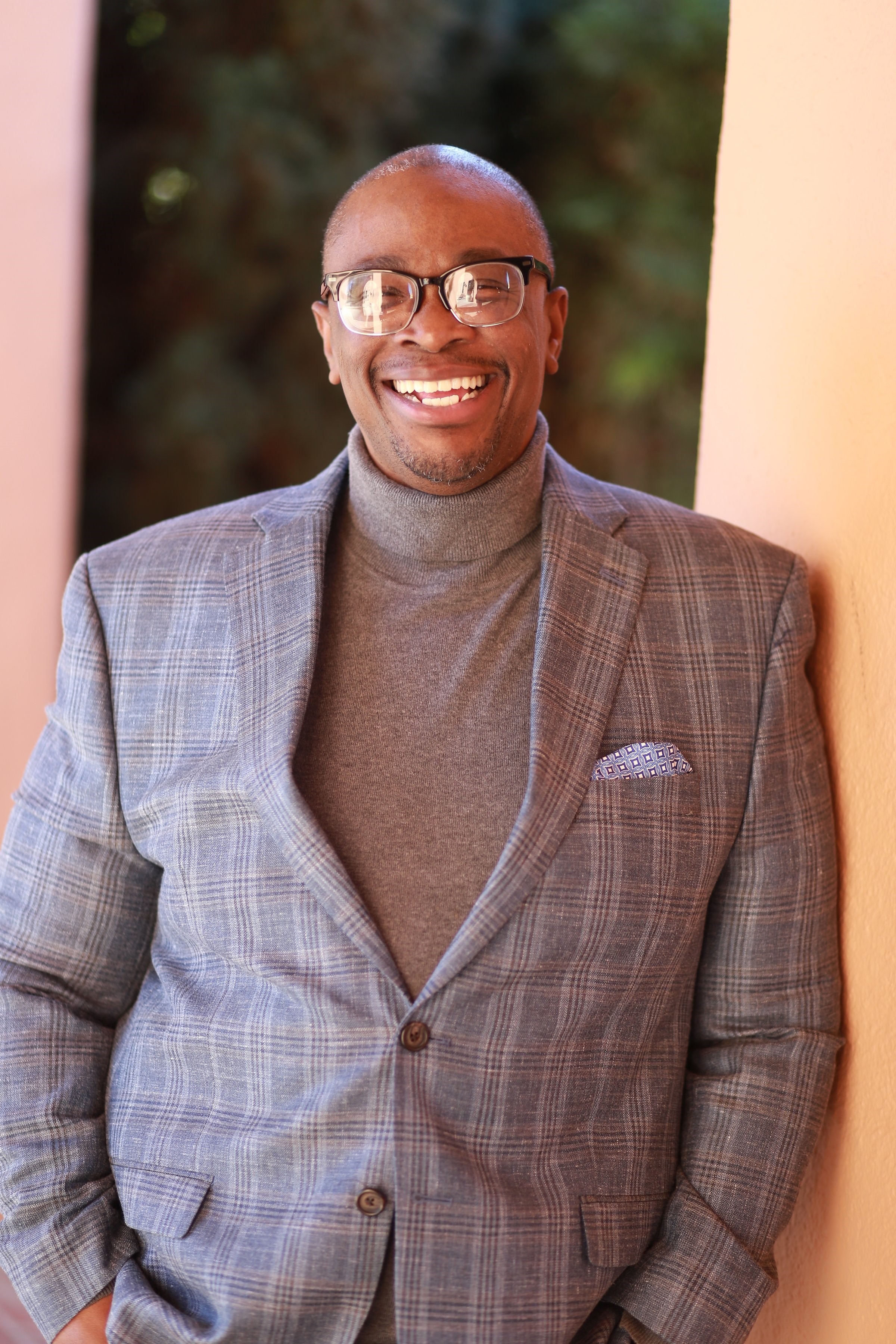 Eric joined EHC with over 20 years of administrative and operational experience within the for-profit and not-for-profit arenas. He has notable experience in the management of Human Resources, Information Technology and Finance. He uses his skills and experiences to ensure the back office business processes of an organization are efficient, effective and compliant.
Eric joined EHC with over 20 years of administrative and operational experience within the for-profit and not-for-profit arenas. He has notable experience in the management of Human Resources, Information Technology and Finance. He uses his skills and experiences to ensure the back office business processes of an organization are efficient, effective and compliant.
Eric has worked with several notable non-profits such as the San Diego Organizing Project (SDOP), United Way of Greater Los Angeles and the Phoenix House and several multi-million dollar for-profit companies. However, Eric’s heart is with social and environmental justice work.
When not administrating, Eric enjoys traveling, trying new restaurants and eateries, reading and spending time at the beach.
This email address is being protected from spambots. You need JavaScript enabled to view it., (619) 474-0220 ext. 123; Mobile: (619) 961-8102
Franco García
Organizing Director
 Franco joined EHC in 2010. He has a B.A in Political Science from the University of California at San Diego. He directed the Community Building Department at the Coalition of Neighborhood Councils in San Diego and worked with the United Domestic Workers of America and SEIU 2028.
Franco joined EHC in 2010. He has a B.A in Political Science from the University of California at San Diego. He directed the Community Building Department at the Coalition of Neighborhood Councils in San Diego and worked with the United Domestic Workers of America and SEIU 2028.
Franco likes working for environmental justice to secure a safe and healthy environment for the community. He enjoys spending time with his wife and two sons.
This email address is being protected from spambots. You need JavaScript enabled to view it., (619) 474-0220 ext. 164; Mobile: (619) 794-5694
Julie Corrales
Barrio Logan Policy Advocate

Julie grew up in City Heights and now lives in Barrio Logan, both environmental justice communities. She and her family have experienced firsthand the harmful effects of institutionalized racism, including discriminatory land use, lack of protection for domestic workers, over-policing of communities of color and the prison industrial prison complex. In 2016, Julie began volunteering with grassroots organization People Over Profits San Diego to effect criminal justice reform. She joined EHC in 2018 to focus her efforts on fighting environmental racism in her beloved community by advocating for cleaner air, affordable housing, and safe streets.
Julie enjoys spending time with her three children, writing poetry, and performing spoken word at various venues in San Diego. She continues to volunteer on the Leadership Council of People Over Profits.
This email address is being protected from spambots. You need JavaScript enabled to view it., (619) 474-0220 ext. 124
Karla Weber
Administrative Assistant
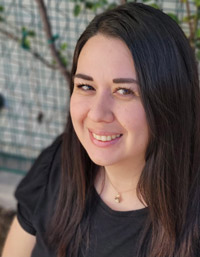 Karla joined EHC in December 2016 with 11 years of experience in Administration and Finance. Born in Chula Vista and raised in Tijuana, she commuted across the U.S./Mexico border on a daily basis to attend school and work. Karla enjoys spending her spare time with her two daughters. She currently serves as the Staff Representative to the Board of Directors.
Karla joined EHC in December 2016 with 11 years of experience in Administration and Finance. Born in Chula Vista and raised in Tijuana, she commuted across the U.S./Mexico border on a daily basis to attend school and work. Karla enjoys spending her spare time with her two daughters. She currently serves as the Staff Representative to the Board of Directors.
This email address is being protected from spambots. You need JavaScript enabled to view it., (619) 474-0220 ext. 100
Kyle Heiskala
Climate Justice Policy Advocate
 Kyle joined EHC in 2021 bringing years of experience as a political and media strategist with a passion for making San Diego a better place to live, work and play for all. He began his career working as a community representative and policy advisor at the San Diego City Council before launching into several international environmental justice campaigns abroad. His background also includes local non-profit management and community activism around social justice, affordable housing, equitable transportation and climate action.
Kyle joined EHC in 2021 bringing years of experience as a political and media strategist with a passion for making San Diego a better place to live, work and play for all. He began his career working as a community representative and policy advisor at the San Diego City Council before launching into several international environmental justice campaigns abroad. His background also includes local non-profit management and community activism around social justice, affordable housing, equitable transportation and climate action.
Kyle grew up in the South Bay in Chula Vista and has a B.A. in Environmental Systems with a focus on Environmental Policy from UC San Diego. When Kyle isn’t working, he can be found tending a garden or planning his next bike ride with his partner.
This email address is being protected from spambots. You need JavaScript enabled to view it., (619) 474-0220 ext. 161
Laura Benavidez
City Heights Organizer
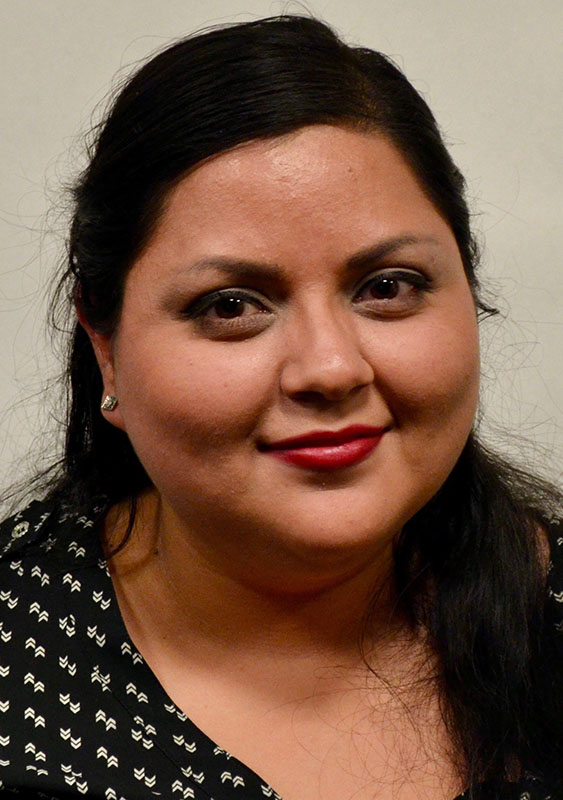 Laura grew up in a diverse community in Southeastern San Diego, which sparked her love for learning and organizing. Her involvement in community organizing began at an early age and has led to her work with non-profits for the past 15 years. In 2016, Assembly Speaker Emeritus, Toni Atkins, recognized her as an “Emerging Female Leader”. Laura’s leadership focuses on empowering others to find their own voice, especially among underrepresented communities, women of color, and youth.
Laura grew up in a diverse community in Southeastern San Diego, which sparked her love for learning and organizing. Her involvement in community organizing began at an early age and has led to her work with non-profits for the past 15 years. In 2016, Assembly Speaker Emeritus, Toni Atkins, recognized her as an “Emerging Female Leader”. Laura’s leadership focuses on empowering others to find their own voice, especially among underrepresented communities, women of color, and youth.
Laura holds Bachelors in Legal Studies and a combined Latin American and Latino Studies/ Sociology, in addition to her three Associates in Chicano Studies, Communication Studies, and Sociology for Transfer. She hopes to use the intersections of her education to assist the communities she serves through resource sharing, leadership development, and mentorship.
This email address is being protected from spambots. You need JavaScript enabled to view it., (619) 474-0220 ext.115; Mobile: (649) 340-8682
Leticia Ayala
Campaign Director, Healthy Kids & Leadership Development
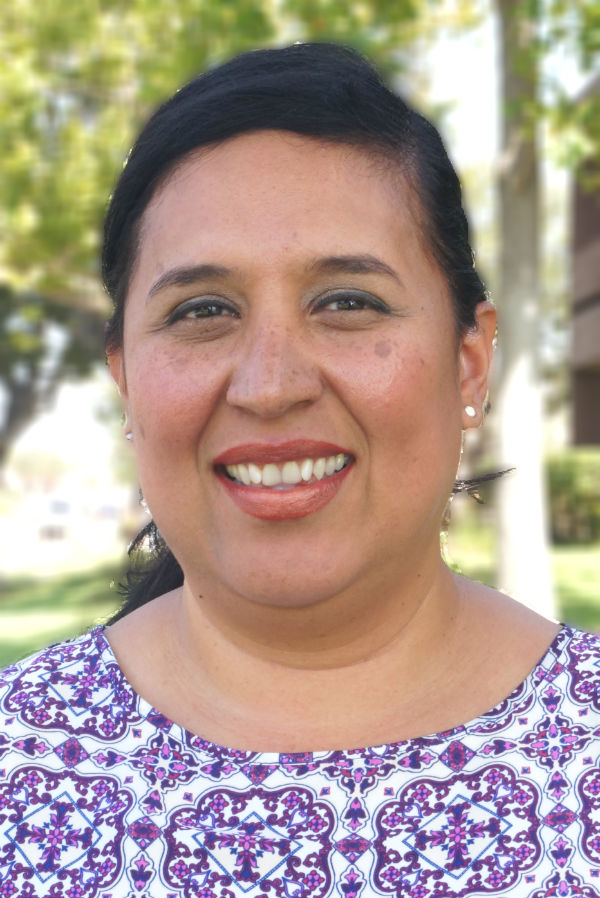 Leticia received a B.A. in Business Administration in 1994, became a certified Lead Hazard Control Specialist in 2000, and was Home Energy Rating System certified in 2010. She joined EHC as Office Manager in 1995, became Membership Associate in 1997, Coordinator of EHC's pilot lead poisoning prevention project in 1998, and Campaign Director in 2002. In high school, Leticia was the Youth Representative for the Los Angeles Mayor's Committee on Children, Youth and Families. She is a member of the San Diego Citizen Advisory Committee for Childhood Lead Poisoning Prevention, the Southern California Healthy Homes Collaborative, Smoke-Free Housing Taskforce and the California Healthy Housing Coalition. Leticia is a 2010 graduate of the Rockwood Leadership Institute.
Leticia received a B.A. in Business Administration in 1994, became a certified Lead Hazard Control Specialist in 2000, and was Home Energy Rating System certified in 2010. She joined EHC as Office Manager in 1995, became Membership Associate in 1997, Coordinator of EHC's pilot lead poisoning prevention project in 1998, and Campaign Director in 2002. In high school, Leticia was the Youth Representative for the Los Angeles Mayor's Committee on Children, Youth and Families. She is a member of the San Diego Citizen Advisory Committee for Childhood Lead Poisoning Prevention, the Southern California Healthy Homes Collaborative, Smoke-Free Housing Taskforce and the California Healthy Housing Coalition. Leticia is a 2010 graduate of the Rockwood Leadership Institute.
Leticia enjoys working for justice and is passionate about protecting children rights. She enjoys nature, traveling, photography, camping, feng shui, and dancing Rueda de Casino with her husband Pablo.
This email address is being protected from spambots. You need JavaScript enabled to view it., (619) 474-0220 ext. 121; Mobile: (619) 952-3632
Lilia Escalante
Finance Director

Lilia joined EHC in 2000 with an AA degree in accounting and business management, and is completing a degree in international business. She is bilingual and is a certified translator/interpreter. In addition to her fiscal responsibilities, Lilia translates EHC publications and provides oral interpretation for events.
Lilia and her three children live next to Chollas Creek, the focus of EHC's urban watershed protection efforts. She and her family volunteer for watershed cleanup events.
This email address is being protected from spambots. You need JavaScript enabled to view it., (619) 474-0220 ext. 120
Maria Magdalena Cerda Baez
Border Environmental Justice Policy Advocate
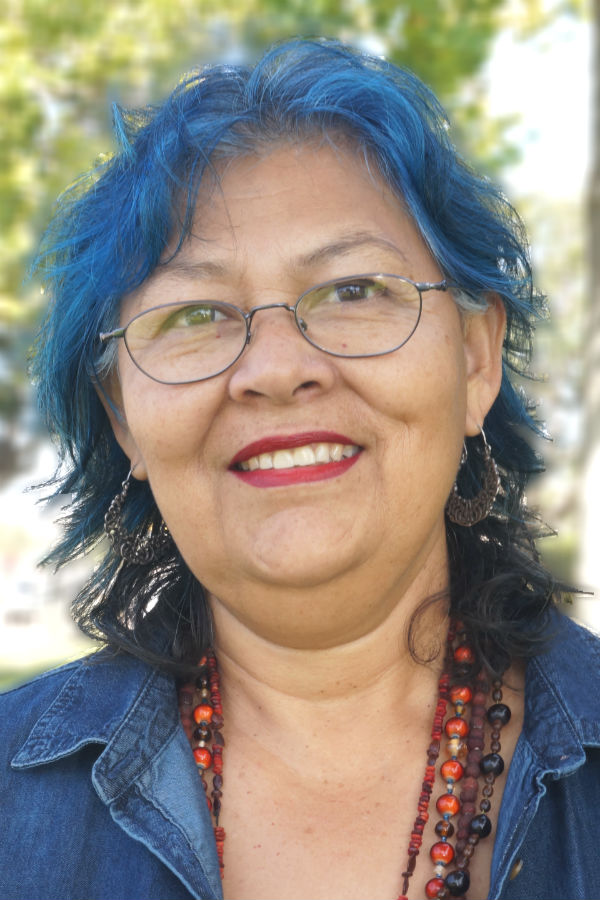 Magdalena joined EHC in 2000. She was technical coordinator for the Mexican government agency INEA (Instituto Nacional de Educación para los Adultos), where she worked with adult literacy programs in the border region. She served as president of a community group in Colonia Guadalupe Victoria in Tijuana that secured land rights and infrastructure from the Mexican Government. In 2009, she received the Grass Roots Organizer award from the United Church of Christ Justice and Witness Ministries.
Magdalena joined EHC in 2000. She was technical coordinator for the Mexican government agency INEA (Instituto Nacional de Educación para los Adultos), where she worked with adult literacy programs in the border region. She served as president of a community group in Colonia Guadalupe Victoria in Tijuana that secured land rights and infrastructure from the Mexican Government. In 2009, she received the Grass Roots Organizer award from the United Church of Christ Justice and Witness Ministries.
Magdalena likes EHC's environmental and social justice efforts to create a world where many worlds can co-exist. Her family and friends are her joy, strength, and inspiration; dancing is her therapy. She enjoys spending time with her family and friends, dancing, gardening, traditional Mexican cooking, sewing, and arts and crafts.
This email address is being protected from spambots. You need JavaScript enabled to view it., (619) 474-0220 ext. 117; Mobile: (619) 307-1695
Maria Moodie
Fund Development Associate
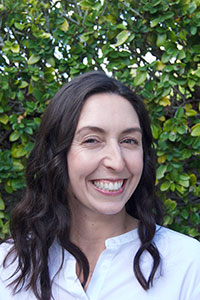 Maria Moodie has 15+ years of non-profit experience, specializing in communications, events, and fund development for high-impact non-profit organizations. Most recently, she worked to open Cristo Rey San Diego High School. A Detroit native, she has worked in Chicago, San Francisco, and Mexico City, and is glad to make San Diego her home. She holds a Bachelor’s degree from John Carroll University and earned her Master of Library and Information Science at Wayne State University.
Maria Moodie has 15+ years of non-profit experience, specializing in communications, events, and fund development for high-impact non-profit organizations. Most recently, she worked to open Cristo Rey San Diego High School. A Detroit native, she has worked in Chicago, San Francisco, and Mexico City, and is glad to make San Diego her home. She holds a Bachelor’s degree from John Carroll University and earned her Master of Library and Information Science at Wayne State University.
This email address is being protected from spambots. You need JavaScript enabled to view it., (619) 474-0220
Monica De la Cruz
Climate Justice Policy Advocate
 Since Monica de la Cruz joined EHC in February 2019, she has grown from an internship in fundraising, to part-time SOMAH Coordinator, to her current role as Climate Justice Policy Advocate. Monica's professional experience ranges from digital advertising and voter outreach for progressive political campaigns to volunteer recruitment and community engagement for youth and education nonprofits. Monica grew up in inland north county San Diego and earned her B.A. in Literature and Cultural Studies at UC San Diego.
Since Monica de la Cruz joined EHC in February 2019, she has grown from an internship in fundraising, to part-time SOMAH Coordinator, to her current role as Climate Justice Policy Advocate. Monica's professional experience ranges from digital advertising and voter outreach for progressive political campaigns to volunteer recruitment and community engagement for youth and education nonprofits. Monica grew up in inland north county San Diego and earned her B.A. in Literature and Cultural Studies at UC San Diego.
Outside of her work at EHC, Monica advocates for more affordable housing, sustainable growth, and safe, high quality active transportation options as a volunteer board member of her community planning group. Monica loves all things San Diego and enjoys spending her free time exploring neighborhoods by bike and learning about San Diego's history.
This email address is being protected from spambots. You need JavaScript enabled to view it., (619) 474-0220 ext. 101
Monserrat Hernández
Community Organizer, National City
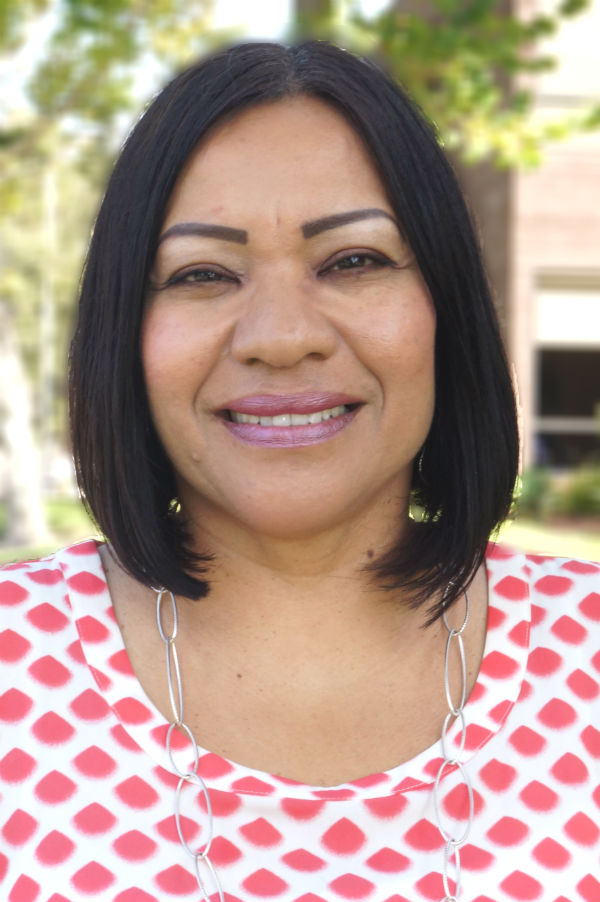 Monserrat learned about the opportunity to participate with EHC at her children's school and then served on EHC's Barrio Logan Community Action Team for five years. During that time, she was involved in the effort to change truck routes in the community. Monserrat began working at EHC in 2007.
Monserrat learned about the opportunity to participate with EHC at her children's school and then served on EHC's Barrio Logan Community Action Team for five years. During that time, she was involved in the effort to change truck routes in the community. Monserrat began working at EHC in 2007.
Monserrat likes meeting people in the community, working with them to improve the quality of life for families and learn about social and environmental justice.
This email address is being protected from spambots. You need JavaScript enabled to view it., (619) 474-0220 ext. 103; Mobile: (619) 952-3656
Nancy Cruz
Director, Organizing
 Nancy was born and raised in a working-class immigrant household in San Diego. Witnessing countless injustices and lack of equity drove her to organize with her community, starting in her early teen years. In 2021, she comes to EHC as the Organizing Director with over a decade of community and labor organizing experience. She has had the honor of building power with youth, immigrants, janitors, fast food workers, postdocs and academic researchers. Nancy is involved in many community efforts and currently serves as an Advisory Board Member of CPI's program Students for Economic Justice and as Board Member of Project YANO.
Nancy was born and raised in a working-class immigrant household in San Diego. Witnessing countless injustices and lack of equity drove her to organize with her community, starting in her early teen years. In 2021, she comes to EHC as the Organizing Director with over a decade of community and labor organizing experience. She has had the honor of building power with youth, immigrants, janitors, fast food workers, postdocs and academic researchers. Nancy is involved in many community efforts and currently serves as an Advisory Board Member of CPI's program Students for Economic Justice and as Board Member of Project YANO.
Nancy is passionate about building a better future and enjoys dancing, taking nature walks and spending quality time with family and friends.
This email address is being protected from spambots. You need JavaScript enabled to view it., (619) 474-0220
Rebecca Miranda
Executive Assistant
 Rebecca joined the EHC team in 2020. Originally from California’s Central Valley, Rebecca is committed to fostering healthy community building and facilitating the advancement, social capital, and representation of marginalized communities at both the local and global levels. Before working at EHC, she held roles at the Partnership for the Advancement of New Americans, and as a co-chair for the San Diego Refugee Forum’s World Refugee Day Committee. Rebecca holds a master’s degree in International Relations from the Institut Barcelona D’Estudis Internacionals, where she focused her thesis research on social movement theory and transnational advocacy networks.
Rebecca joined the EHC team in 2020. Originally from California’s Central Valley, Rebecca is committed to fostering healthy community building and facilitating the advancement, social capital, and representation of marginalized communities at both the local and global levels. Before working at EHC, she held roles at the Partnership for the Advancement of New Americans, and as a co-chair for the San Diego Refugee Forum’s World Refugee Day Committee. Rebecca holds a master’s degree in International Relations from the Institut Barcelona D’Estudis Internacionals, where she focused her thesis research on social movement theory and transnational advocacy networks.
In her free time, Rebecca enjoys traveling, playing beach volleyball, visiting the San Diego Zoo, and spending time with her family and friends.
This email address is being protected from spambots. You need JavaScript enabled to view it., (619) 474-0220 ext. 124
Our power comes from our talented, dedicated and persistent staff and board of directors, who bring a diversity of expertise and experience, and from EHC Leaders, who serve on our five Community Action Teams in the communities in which we are most active.